#21st Director’s Cut Awards
Explore tagged Tumblr posts
Text
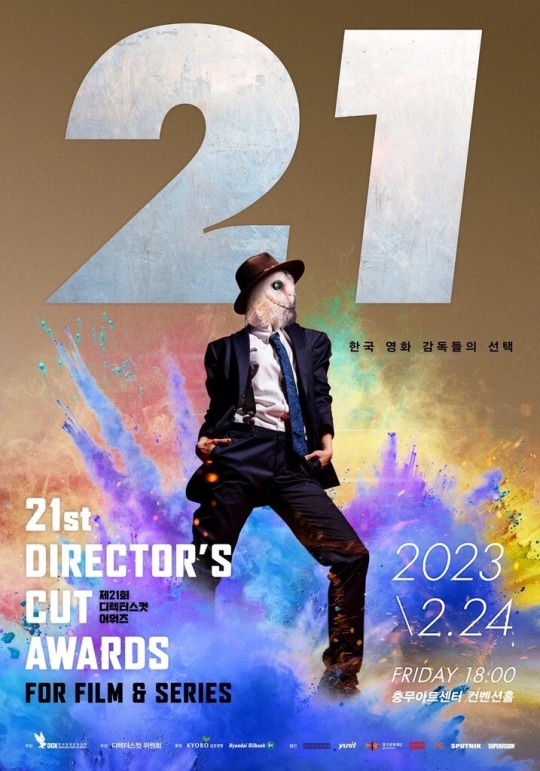
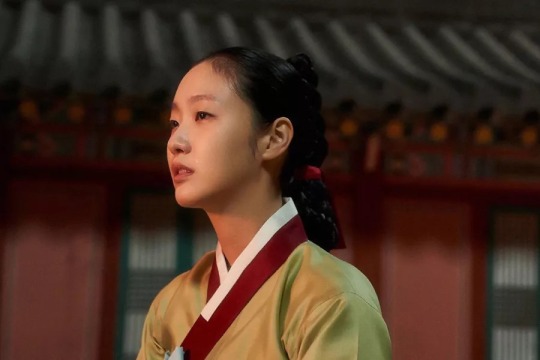
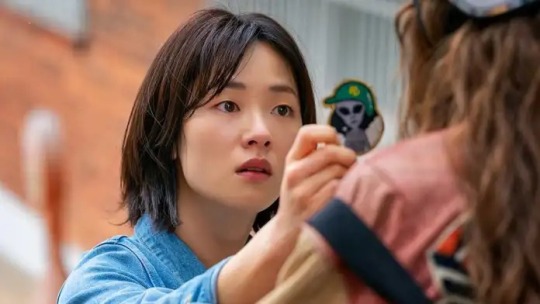

#jung eun chae#kim go eun#jeon yeo been#21st Director’s Cut Awards#Nominees for performances#congratulations 🤩👏🏽🎉🥳💐#my goddesses#for roles in#HERO: Kim Go Eun#ANNA: Jung Eun Chae#GLITCH: Jeon Yeo Bin#jeon yeo bin
0 notes
Text
so basically almost everyone in narco saints got nominated for best actor in a tv series for the 21st directors cut awards: ha jung woo, hwang jung min, park hae soo, jo woo jin...1. watch this show if you haven't 2. are they all going to attend the award ceremony👀?! i hope so.
11 notes
·
View notes
Text
Technology to the new, LinZhi technology to lead the trend of new materials
Under the guidance of the national development concept of "science and technology to the new", the 8th International New Materials Fair (CMF) was successfully concluded on June 21st in Shenzhen. This three-day event not only comprehensively demonstrated the latest research and development results of domestic and foreign new materials industry, but also built an important platform to promote technical exchanges and cooperation within the industry. Among them, Linzhi Technology, with its excellent technical strength and cutting-edge solutions, became the dazzling star of the exhibition and won the "2024 International New Materials Fair Innovation Award - Most Potential New Materials and Technologies" award.

This year's exhibition gathered more than 300 domestic and foreign leaders in the new materials industry, who brought nearly 10,000 new material solutions and scientific and technological innovations. On the first day of the opening, a number of theme forums and activities focusing on the frontiers of the new materials industry were staged in turn, attracting the active participation of many academicians and experts, designers, brand terminals and manufacturing enterprises, and investment gurus. The collision of ideas and exchange of wisdom jointly promoted the innovation and development of the new materials industry.

Among the many exhibitors, Linzhi Technology won wide recognition in the industry with its unique technical advantages and innovative achievements. The company exhibited a number of innovative products, including applications in industrial home appliances vibration and noise reduction, automotive anti-collision, electronic equipment impact prevention, precision instruments shock absorption and other fields, which brought new solution ideas to the audience. Especially the ACF material, its unique performance and application prospects have aroused strong interest from domestic and foreign customers, laying a solid foundation for future cooperation.

With the excellent performance of its ACF material, Linzhi Technology won the "2024 International New Materials Exhibition Innovation Award - the most promising new materials and technologies" award. This honor is not only a recognition of the technical strength of Linzhi Technology, but also a vivid interpretation of the national "science and technology to the new" development concept.

General Manager of Linzhi Technology (first from right) introduces ACF materials to customers.

Sales Director of LINZHI TECHNOLOGY introduces ACF-VM adhesive to customers.
As a leading enterprise in the impact protection industry, LINZHI always adheres to the concept of innovation and development, and is committed to the research and development and application of new material technology. By actively participating in the international new materials exhibition, Linzhi Technology not only shows its own technical strength and innovation achievements, but also promotes the communication and integration of the new materials industry, and injects new power for the transformation and upgrading of the industry.


In the future, Linzhi Technology will continue to plow into the research and development of new material technology and innovation, and continuously launch more market competitive quality products and services. At the same time, the company will also actively respond to the national "science and technology to the new" call, for the prosperity and development of the new materials industry to contribute more power, to help our country in the field of global new materials to achieve more right to speak and influence.
400-6543-699
www.acf.com
0 notes
Text
Download EP: Earl Chukwuebuka Ogbodo Eze - A Beautiful Thing Is Never Perfect

Chukwu Ebuka is the Public Policy Manager for Anglophone West Africa at Meta (née Facebook). In this role, he co-shapes and executes Meta’s policy agenda across five countries in English speaking West Africa (including Nigeria and Ghana), and leads strategic engagements with governments, civil society, policy elites and other stakeholders. More recently, Ebuka was appointed to lead the design and execution of Meta’s Africa wide multi year youth policy strategy for Meta’s Africa Public Policy team – the best team in the world. Ebuka began his career nearly a decade ago working on some of 21st century’s most pressing tech law and policy challenges & exploring cutting-edge research at the intersection of law, technology and policy as Nigeria’s pioneer Google Policy Fellow (and the first undergraduate in Africa to be awarded the highly competitive and prestigious fellowship) in 2015. Prior to joining Meta, he practiced law at some of Nigeria’s most prestigious law firms (Templars, Aluko & Oyebode; and, Banwo & Ighodalo) where he focused on technology, corporate, and project finance and was fortunate to have advised on some of the most complex, market-defining transactions in Africa. Prior to Templars, Ebuka gained experience in the tax, regulatory and advisory services unit of PricewaterhouseCoopers. He was awarded an Associate Fellow of the Royal Commonwealth Society in 2016, on recommendation of the Queen Elizabeth Diamond Trust Foundation, UK for demonstrating a sustained commitment to promoting the values of the Commonwealth and working to improve the lives of Commonwealth citizens. Ebuka is a graduate of the University of Nigeria and the Nigerian Law School – where he was awarded the Director-General’s Prize for Attaining First Class and Chief Ernest Shonekan G.C.F.R Prize by the Council of Legal Education placing him in the top 0.25% of a National Class of 5,846Students spread across 6 Campuses. “A Beautiful Thing Is Never Perfect” EP is his first project with each track performed live. Earl Chukwuebuka Ogbodo Eze has also hinted that there is another track on the way – a love song which he promises would be the best anyone will ever listen to. DOWNLOAD Earl's Praise & Worship DOWNLOAD Hallelujah Chimle DOWNLOAD Nothing Dey Sup DOWNLOAD Ime La DOWNLOAD Chukwu Ebuka DOWNLOAD Baptistism by Fire: The Rebirth Read the full article
0 notes
Note
Thank you for those podcasts! I listened to that first one after you posted earlier and i feel like I've learned so much about oliver and the show from that alone. Super eye opening (also kinda sad how he thinks about himself lol I want to give him a big hug). I hope he does more - do you know if peter, aisha, kenny and ryan have done any?
You can find them below the cut!
Peter Krause:
Armchair Expert with Dax Shepard - LIVE: Peter Krause
Armchair Expert Live from Detroit at the Fox Theatre. June 21st, 2019.
Spotify - Apple Music
Off Camera with Sam Jones - 147. Peter Krause
Peter joins Off Camera to discuss discovering acting, why playing a character who is too familiar is terrifying, how the baritone horn became the source of his teenage rebellion, and what it's like to be a hero to funeral directors nationwide.
Not on Spotify or Apple Music, but can be found here which also shows other apps that have it.
Aisha Hinds:
Trials to Triumphs - How Aisha Hinds Is Putting Her Pieces Back Together
Ashley chats with close friend and critically acclaimed actress Aisha Hinds about her path to replenishment. Aisha has appeared in a number of hit series including 9-1-1, True Blood and The Shield. She made her mark with a powerful performance in Underground playing icon Harriett Tubman. In this vulnerable conversation, Aisha reflects on how her parents’ divorce left her feeling fractured as a young girl and led to her “pursuit of wholeness.” Aisha discusses how her church family stepped in during a trying time in her youth and helped her get back on the right track. She also reveals how she’s paid that restoration forward with her nephew. Aisha celebrates her “destiny advocates” in the industry who challenged her to dream bigger and pursue iconic roles that have forever shaped the trajectory of her career.
Spotify - Apple Music
Keeping It Reel - 365: Ava DuVernay & Aisha Hinds
This week on the BIG show, Black Reel Award-winning director and producer Ava DuVernay returns to discuss her explosive new Netflix miniseries, When They See Us. Also, one of the most versatile actors in the business, Aisha Hinds will discuss sharing the screen with Godzilla. The promising career of actor Jason Mitchell has hit the skids, we'll discuss the allegations and his future prospects.
Spotify - Apple Music
Really Famous with Kara Mayer Robinson - Aisha Hinds
Are you watching 9-1-1 on FOX? Did you see True Blood, NCIS, Shots Fired, Wet Hot American Summer, Under the Dome or Underground? If so, you know Aisha. But you don't know what a profound human being she is! Don't worry, you will after this conversation with Kara. The actress goes deep about ups and downs, people who touched her life (namely Laurence Fishburne, Ava DuVernay and Sarah Paulson) and VERY UNUSUAL habits. She cries (a few times!), laughs (hysterically!) and shares her BIGGEST secret.
Spotify - Apple Music
Behind Her Faith Podcast - 1.04: Aisha Hinds
This is a follow-up to Aisha's episode of Behind Her Faith.
Spotify - The episode of BHF is available for rent on amazon or you can get a 7-day free trial on ALLBLK
Kenneth Choi:
Behind Greatness (Inspired North) - 66. Kenneth Choi
Ken joins us from LA where he lives, works and breathes his life’s passion. Having grown up in a conservative immigrant family environment in Chicago, Ken felt that he wanted to explore more and differently than what was expected of him. Being very shy and emotionally-tuned, young Ken also understood that he needed to break out of his environment. But, as he explains, he spiralled downwards for several years into his early adulthood. It took a certain self-realization to have him turn it around. And boy, did he. We discuss with him many of life’s lessons that he’s learned along the way and how he weaves them into his work: having empathy for others and leading with compassion, the belief in making happen what you want, the confidence in your own creative self, the courage in leaving everything behind to focus on exploration.
Spotify - Apple Music
Ryan Guzman:
UFC Unfiltered with Jim Norton and Matt Serra - Tony Ferguson, Michael Chandler, actor Ryan Guzman, and co-host TJ De Santis
(Ryan joins at 1:08:00)
Actor and MMA practitioner Ryan Guzman closes the show by explaining why he has decided to train and compete in an amateur MMA bout despite having a successful acting career, explaining his pick for the main event of UFC 262, and reflecting on how his history as a fighter has impacted his acting and modeling career.
Spotify
#i haven't listened to peter or kenny's but i plan to!!#podcast#anon#answered#kenneth choi#peter krause#aisha hinds#ryan guzman
69 notes
·
View notes
Text
Top 10 films of 2019
Here’s my very belated top 10 films of 2019! Note that this is a list of films that were released in the UK theatrically in 2019, meaning it includes certain releases that would be considered to belong to 2018 by others.
Honourable mentions: Joker, Hustlers, Booksmart, A Private War, Fighting With My Family
(And don’t worry - Little Women, 1917 and Uncut Gems are all already on my list for 2020.)
Look out for my most anticipated films of 2020 list, coming soon!
With that out of the way, here’s my list (in ascending order)! Do share your picks in the comments!
10. The Irishman (dir. Martin Scorsese)

This is clearly the work of a master filmmaker with much on his mind. In telling the story of Frank Sheeran, Scorsese is telling the story of a man who makes his trade in violence. Instead of elevating Frank as a hero or a figure of glamour, he’s consistently shown to be rather pathetic. He stumbles into the role of hitman for various factions of the criminal underworld, and sticks to it seemingly because it’s what comes most easily to him. The violence enacted by Sheeran is inane and routine, with no thought given to the personal cost until it is far too late. The final 15 minutes of this film show a life petering out with a whimper, laying bare the indignities of old age and the cold, empty horror of enduring it with no company besides your own regrets. The Irishman is a portrait of a life lived badly, and in the hands of anyone besides Scorsese it could have been dry and tedious. Instead, the filmmaking is incredibly assured and the editing is whip-sharp (in Thelma Schoonmaker we trust), making it a pleasure to watch even with the lengthy runtime.
9. The Farewell (dir. Lulu Wang)
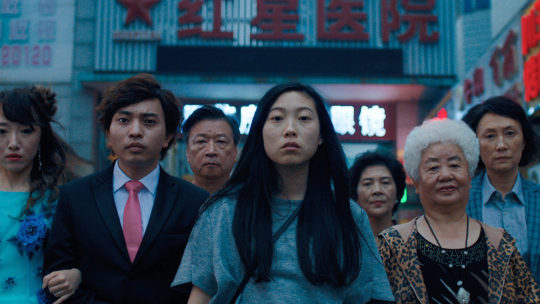
The Farewell is a personal story about a young Asian-American woman (Awkwafina) struggling to reconcile her heritage with her current situation and values - specifically, she is tested when her grandmother is diagnosed with cancer and the wider family make the decision to hide the truth from her. The Farewell does a fantastic job of generating empathy for all the different perspectives and positions in play, but it’s truly anchored by Awkwafina’s amazingly nuanced and tender performance - basically, anyone who’s ever loved a grandparent should leave this feeling incredibly moved and inspired. The themes of The Farewell are both specific to the Asian-American experience and general to anyone who has struggled with maintaining bonds over a vast distance, whether physical or cultural. Lulu Wang is an exciting new voice in cinema, and I will watch her career with great interest.
8. Pain & Glory (dir. Pedro Almodóvar)

Almodóvar is one of my favourite filmmakers, and one of the reasons I love his work so much is its wild diversity. My favourite from him is The Skin I Live In, a film that could not be more different than Pain & Glory. This is a small, very personal film telling the story of a middle-aged director (Banderas, clearly playing a version of Almodóvar himself) who’s struggling with his legacy as a filmmaker and the increasing privations attached to middle age. Suffering in the present, Salvador finds himself retreating into memories of his childhood - particularly of his mother (Penelope Cruz) and his first crush. The childhood sequences were where the film really sung for me, perfectly capturing the sun-dappled glow of reminiscences of childhood. And the ending, where Almodóvar truly shows his hand, is delightfully mischievous and the perfect cap on this very personal picture.
7. Once Upon a Time in ... Hollywood (dir. Quentin Tarantino)

This is a slice of life movie, but while that might call to mind ‘kitchen sink’ dramas, this is unabashedly a ‘slice of life’ movie about Hollywood and the mythology that has developed around it. It’s meandering and feels rather aimless for the bulk of its runtime, but that’s kind of the point. It’s exactly what the title promises in that it recaptures what life was like in a very specific time and in a very specific place - it’s an idealised, loving depiction of the Hollywood of the time, with the movie stars, flawed and fading as they are, cast as heroes menaced by the drugged-up hippies poised to dismantle the status quo. It ends in the fashion you’d expect from Tarantino, but here I found his revisionist approach to history remarkably poignant and effective. Film is a magic medium, with Hollywood serving as the ultimate dream factory - it feels completely right that Tarantino would attempt to use celluloid to right one of the great tragedies of Hollywood history.
6. One Cut of the Dead (dir. Shinichirou Ueda)
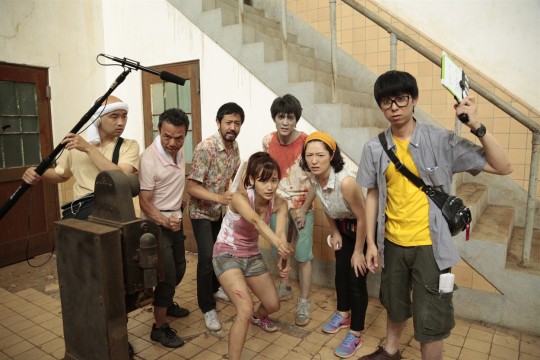
I went into this with no expectations whatsoever - and what a treat it was! One Cut of the Dead is easily one of the funniest movies I’ve seen in years, taking what initially seems like a trite concept (a crew is filming a zombie movie at a desolate location ... only to discover that the zombies are real!) and twisting it in a truly ingenious way. The comedy is very broad, but it is consistently delightful and always manages to avoid becoming crass - the movie even has some really sweet family dynamics at the centre of it, which gives it some real emotional heft. The success of this film is heavily reliant on a major twist that occurs part-way through, so the best advice I can give you is to stay as far away from spoilers for this one as possible - go in blind, and you will be amply rewarded for your faith.
5. Midsommar (dir. Ari Aster)
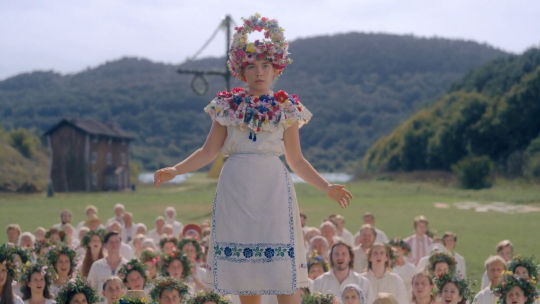
I went into this film with reservations, since I wasn’t a huge fan of Hereditary (by the same director), which I found to have extraordinary moments but iffy execution overall. This movie, however, wowed me. While marketed as a freaky/arty horror film, the director has described it as a fairy tale, which is the level on which is spoke to me. Midsommar follows Dani (an incredible Florence Pugh), a young woman who has suffered a terrible loss, as she travels with her boyfriend and his friends to a pagan festival in the Swedish countryside. Dani is painfully isolated, and her grief is hers to shoulder alone since her boyfriend is un-receptive and entirely unprepared to help her. Over the course of the film, destruction and creation are conflated in ways that are both beautiful and horrific - this film spoke to me on a profound level, and the way it ended gave me an incredible sense of catharsis. This won’t be for everyone, for I found it to be a deeply special film. Let’s all raise a toast to the imminent, and much welcome, reign of Florence Pugh.
4. Parasite (dir. Bong Joon-Ho)

Parasite is that rare film that more than lives up to the massive hype surrounding it (you don’t get more hyped than winning Best Picture at the Academy Awards!). It’s hard to write about this film without spoilers, since so much of the joy of Parasite lies in discovering what the hell is going on. This is an ‘upstairs downstairs’ movie for the 21st century, where the downstairs people have fierce designs on the lives and pleasures enjoyed by their social superiors. The rich people here are not vilified, though they are depicted as vapid and shallow, perpetually searching for new ways to fill their lives with meaning. Their struggling counterparts from the rough side of the city are struggling only to get by - their lives too hard to allow time for such indulgences. This is a film about the fantasy of social advancement, and the power that dreams have to hold us in thrall to hopeless ambitions. It’s masterfully directed, acted and designed, and it has been extremely gratifying to see it receive such widespread recognition.
3. Marriage Story (dir. Noah Baumbach)

I was always going to see this (hey Adam Driver!) but I was entirely unprepared for how great Marriage Story was. Easily Baumbach’s best film, Marriage Story is a masterclass in acting and character writing - it’s fiercely intelligent in how it constantly forces you to reassess what you’re seeing and where your sympathies lie. Does Charlie seem like an oblivious, navel-gazing asshole? Sure, but he’s also confused and vulnerable and thrown entirely off balance by his awakening consciousness of his wife’s dreams and ambitions. Nicole is self-effacing and self-denying, as so many women are, which makes her emerging confidence and newfound sense of direction incredibly satisfying to witness. In the second half of Marriage Story, Driver’s Charlie undoubtedly takes the spotlight - it’s clear to me that he becomes the focus largely because he continues to flounder as Nicole finds her footing. Baumbach, wisely I feel, is most interested in his characters when they’re lost, struggling to be better but barely understanding what that means. Even if you don’t sympathise with Charlie by the end of Marriage Story, I can promise you will come away with a thorough understanding of him thanks to Driver’s extraordinary performance. Superlative work, all round. (It’s also, just for the record, the only film of 2019 to make me cry.)
2. Portrait of a Lady on Fire (dir. Céline Sciamma)

This is the 2019 film I am most excited to see again (it’s coming out in a week in the UK - I’m so excited!). Sciamma’s film is an incredibly moving and deeply beautiful love story, depicting how a female artist in 18th century France falls in love with the woman she has been covertly employed to paint. Portrait is very much a film about the act of looking, and in many ways it’s the ultimate female gaze film - it’s all about women looking at women, as depicted by a female filmmaker. Gazes are political as much as they’re romantic - here, our two heroines drink each other, aware of exactly how dangerous and forbidden their mutual intoxication is. The woozy thrall of their relationship is exquisitely conveyed through the cinematography and direction, and the final shot - which I won’t spoil - is an all-timer that serves as an exquisite coda to the entire film. This is a truly superb film, and I’m still incensed that it received no substantial awards recognition. Let’s hope it goes down in film history as the masterpiece it is, yet another omission proving the limitations of the Oscars as a metric for great art.
1. The Favourite (dir. Yorgos Lanthimos)
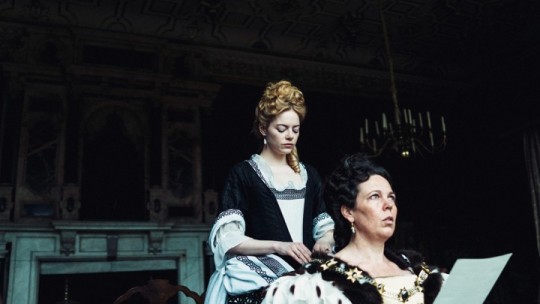
This completely wowed me, and against all the odds it stuck with me as the best film I saw in 2019 - it features a trio of magnificently compelling female characters (played by Olivia Colman, Rachel Weisz and Emma Stone) operating at the court of Queen Anne (Colman is Anne, Weisz and Stone are courtiers), and is laser-focused on the shifting sands of the power dynamics between them. The script is savage without sacrificing poignancy, witty without ceasing to be emotionally honest. And while I’ve seen some react to this film as a comedy (and it certainly has laughs, most of which are tightly packaged with shock), for me it was very clearly a drama about the inscrutable and complicated relationships that exist between women. Specifically, it is about how those relationships run the gamut from sincere affinity to ruthless manipulation. This is a spectacular movie, visually and thematically rich in every frame, and it also has the best use of an Elton John song in 2019 (sorry, Rocketman!).
Fly away, skyline pigeon fly, towards the things you’ve left so very, so very far, behind.
#the irishman#portrait of a lady on fire#the favourite#midsommar#adam driver#marriage story#florence pugh#the farewell#awkwafina#parasite#once upon a time in hollywood#film#cinema#best of the year#2019#one cut of the dead#pain and glory
315 notes
·
View notes
Text
1988 interview with Dean. This is a really good one and helps bring more of his life into perspective. Note: the newspaper originally censored his swearing, but I’ve put it back.
Guthman, Edward. "Dean Stockwell: Third Time's a Charm." The San Francisco Examiner (San Francisco, California), August 14, 1988.
“Six years ago, Dean Stockwell's acting career had turned to dust. Reduced to playing parts in unreleasable, made-in-Mexico movies that now make him cringe, Stockwell decided to chuck it all and get out of Hollywood.
“Along with his second wife, Joy, Stockwell moved to Santa Fe, settled down under the wide New Mexico sky and applied for a real estate license. He even placed an ad in Daily Variety to announce his exile: 'Dean Stockwell will help you with all your real estate needs in the new center of creative energy.'
“Stockwell never sold a house; he didn't need to. Instead, almost as soon as he'd relocated, things started happening to the former 1940s child star. It began with a small part in David Lynch's 'Dune,' and escalated with an important supporting role in Wim Wenders' highly regarded 'Paris, Texas.'
“Moving back to California to cash in on his fortune, Stockwell acted in 'Beverly Hills Cop II,' 'Gardens of Stone,' and 'To Live and Die in L.A.' He also played a cameo role, as Howard Hughes, in the newly released 'Tucker: The Man and His Dream.' And in 'Blue Velvet,' David Lynch's American nightmare, he delivered a chilling cameo as Ben, a waxlike, sexually ambiguous drug dealer.
“And now, at 52, Stockwell says he's found 'the favorite role I've had, by far.'
“The picture is 'Married to the Mob,' a dark, romantic comedy by Jonathan Demme ('Melvin and Howard,' 'Stop Making Sense') and Stockwell plays Mafia don Tony 'the Tiger' Russo. Wearing an Al Capone fedora and full-length vicuna coat, Tony is a rich, sardonic, larger-than-life character -- the kind Stockwell has never had a chance to play until now.
“Opening Friday at the Galaxy and UA the Movies, 'Married to the Mob' has been touted as Demme's first shot at a genuine box-office winner. Set in Long Island, New Jersey and Florida, it stars Michelle Pfeiffer as Angela DeMarco, a young Mafia wife who tries to start a new life when her husband, Frankie 'the Cucumber' DeMarco, is pumped full of lead during a hot-tub tryst at the Fantasia Motel.
“When Stockwell's character isn't ordering hits, drug deals and the dumping of toxic waste, he's lusting assiduously after the gorgeous widow. Meanwhile, bumbling FBI agent Mike Downey (played by Matthew Modine) is jumping through hoops trying to shadow Angela and 'catch Tony with his pants down.' Instead, he falls in love with Angela.
“During a recent luncheon interview, not far from his central California home, Stockwell spoke about the film, about his new happiness as the father of two children and about the bizarre trajectory of his long career. Dressed in a long-sleeved shirt and slacks, wearing a Panama hat and drawing first on a cigaret, later on a cigar, Stockwell emanates prosperity and calm.
“'I don't know why I was unemployed so long,' he says, reflecting on a fallow period that started in the '60s and lasted the better part of two decades. 'The only thing I can figure out in my own mind is that, for some reason or another, I was being made to wait until a certain time in my life when my talent would reach its full maturity and fruition.'
“Ironically, he says, he felt just as equipped 10 years ago to do the work he's doing now -- 'only I couldn't get fucking arrested.'
“Today, Stockwell sees harmony in the fact that his new success coincides with the arrival of two children. His son, Austin, will be 5 in November, and his daughter, Sophia, turns 3 this month. Inordinately proud and protective, he refuses to allow his children to be photographed, and also requests that the town in which he and his family reside not be named. (There were no children from his first marriage, to Millie Perkins, which lasted from 1960 to 1962.)
“'I want to make a lot of money and I want to put it away for my children,' he says. To that end, Stockwell has been snapping up job offers. 'A lot of people ask me, "How have you been able to choose these wonderful things you're doing? Have you been very selective?" And I have to tell them, "I haven't been choosing what I'm doing." Things have been coming and I've been accepting virtually anything that's come.'
“Stockwell's ambition is so great that, for the first time in his life, he actively pursues aspects of his career that he once shunned- interviews, for example.
“'My entire motivation in life is my family,' he says. 'I don't need to get an award. I don't need recognition. I've had that already. What I need is to provide. The best way I can provide is to be successful, and the best way I can be successful is to take advantage of all the things at my disposal to achieve that, one of which certainly is press.'
“Take a look at the young Stockwell, specifically the version that emerges from old magazine and newspaper interviews, and you meet another person altogether.
“Robbed of a normal childhood, Stockwell had made 22 films by the time he was 15 -- including 'The Boy with Green Hair,' 'Kim,' 'Anchors Aweigh,' and the Oscar-winning 'Gentleman's Agreement.' Working nonstop, he had a privileged life that millions of children probably envied, but he loathed it nonetheless.
“The son of show-business parents -- his father, Harry Stockwell, was the voice of the Prince in 'Snow White and the Seven Dwarfs,' and his mother, Betty Veronica, was a former stage dancer -- Stockwell made his professional debut at 7. It all happened by a fluke: when Stockwell accompanied his older brother, Guy, on a Broadway audition, the casting director took a liking to both boys, and cast each one. The play, aptly enough, was called 'Innocent Voyage,' and it led to an MGM contract for curly-haired Dean.
“From the beginning, the pressure on young Stockwell was intense. His parents had divorced when he was 6, and when his father defaulted on child-support payments, Dean reluctantly became the family provider. Over a six-year period, he averaged three to four films per year.
“At home, he says, 'There was a lot of friction... I was getting all the attention, but I hated it. [Guy] couldn't appreciate that, because he wasn't getting the attention. He had all these friends, his peer group, that he took for granted. I had none and I resented him for being able to live that way. I was fucking lonely.'
“When he was 13, chained to a seven-year contract, Stockwell was described by one magazine as 'a young rebel who despises acting and resents every moment it takes from his fleeting boyhood.' Many years later, Stockwell told columnist Hedda Hopper, 'Child actors exist in a sort of limbo between childhood and maturity and belong to neither. Adults take them too seriously and other children are either awed or hostile. A child actor can find friends in neither group.'
“Finally, Stockwell fled Hollywood when he was 16. He cut off his curly locks, started using his real name, Robert Stockwell, and for the next five years roamed the country, working menial jobs and disavowing his true identity. 'People that might have known me from seeing my films knew me as a young child,' he remembers. 'Now I was 17 and I wasn't that recognizable.'
“Around the time of his 21st birthday, Stockwell was pushing papers as mail boy to a Manhattan plumbing firm. 'Of all the jobs that I'd had in those intervening years,' he remembers. 'I think I hated that worse than anything. I came to the realization I had no training at anything. My primary education was very skimpy, very poor, and happened under the worst type of conditions. I was literally at the mercy of the world.'
“Most of Stockwell's childhood earnings were squandered by crooked accountants, he says, and he knew that the tiny sum being held in a trust wouldn't last forever. 'So I thought, "What am I gonna do? Well, let's go back and attack this [acting career] again, and see if I can do it a little more on my terms."'
“What followed for Stockwell was a brief but impressive 'second career.' He starred in the 1959 film 'Compulsion,' based on the Leopold-Loeb case of the '20s, and won a joint acting award with Orson Welles and Bradford Dillman at the Cannes Film Festival. He played the lead in the 1960 film of D. H. Lawrence's 'Sons and Lovers,' and in 1962 scored the plum role of Edmund Tyrone in Sidney Lumet's film version of 'Long Day's Journey Into Night,' holding his own alongside Katharine Hepburn, Ralph Richardson and Jason Robards.
“Stockwell was winning the best parts, but found his attention drifting elsewhere. What was happening, he says, were the first signs of the '60s youth revolution. 'It captured my imagination as much as anybody's. And it represented to me -- I can see this in retrospect -- something in childhood that I had missed: the freedom and loving being alive, without responsibilities and work and having to report to the studio every day, and deal with fans and interviews and shit that I hated when I was a kid.'
“So Stockwell called his agent, said, 'I'm not workin',' and dropped out once again. When he tried to come back three years later, though, 'I found it very difficult, 'cause I'd been out-of-sight, out-of-mind.' What followed was a long period of marginal employment: He found some TV work, took parts in low-budget trash ('The Dunwich Horror') and occasional oddities (Dennis Hopper's 'The Last Movie') and co-directed a film with musician Neil Young ('Human Highway') but often just didn't work at all. At one point, he went 18 months without a job.
“Today, along with his buddy Hopper, Stockwell is enjoying a major career renaissance. And with his starring role in 'Married to the Mob,' he says, he's never felt more confident.
“'I knew before I started the film that this character was going to work in spades,' he says, adding that Demme, as director, deserves credit for taking a risk with such offbeat casting. Instead of picking Peter Falk, Vincent Gardenia or another ethnically identified actor to play the Mafia don, he went with Stockwell (who is actually half-Italian on his mother's side).
“Demme's inspiration occurred on a flight from Los Angeles to New York, when he opened a copy of the Hollywood Reporter. Stockwell had just changed agents, and in order to announce the fact, had taken out a full-page ad. Demme saw the picture, and instantly recognized his Tony.
“Weirdly enough, Stockwell made another film immediately prior to 'Married to the Mob': a Canadian feature called 'Palais Royale,' due for an October release, in which he plays a character almost identical to Tony Russo.
“'It's very curious,' he says. 'For all my years I'd never had a role like this come my way, and here it was twice. The Mafia don in New York, the Mafia don in Toronto, both of them colorful and charming and also threatening. And I just thought, "What am I gonna do? It's the same character." So I decided to do the same character in both those movies.'
“To take the coincidence 'one nauseating step further,' Stockwell says he's also got a part in the recently completed 'Backtrack,' Hopper's next film. This time he plays a corrupt mob lawyer, dropping the Italian accent for a generalized East Coast sound.
“It would be difficult to find a film actor who's busier than Stockwell at this moment. And it would be difficult to find anyone whose job history better illustrates the vicissitudes, serendipities and insecurity of a Hollywood career.
“Looking back on his misfortunes -- at the career that he was forced to accept as a child, and the humiliation he felt when he couldn't maintain it as an adult -- Stockwell says he's not bitter. 'When you reach your maturity, I think it behooves you to accept the fact that it's absolutely futile and fruitless even to speculate on changing anything in your life. All you can do is get embittered. So I accept everything that's happened as part of my life, and try to push it in a positive direction from the moment right now.'”
#dean stockwell#article#i hear the kid who had plans to get a ranch again in this article :)#i've also been trying to reconcile his working in NYC when he was 21 with what parts he had around then#i think he tried acting again at 19/20#hated it#got out went to NYC worked that job also hated it#so he went back to acting#then Compulsion helped him accept acting more
14 notes
·
View notes
Text
“LITTLE WOMEN” (2019) Review
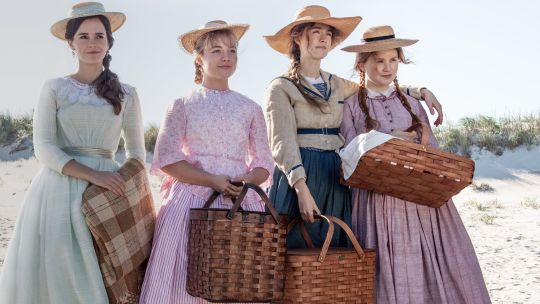
"LITTLE WOMEN" (2019) Review Ever since its release in movie theaters back December 2019, many moviegoers have been in rapture over "LITTLE WOMEN", filmmaker Greta Gerwig’s adaptation of Louisa May Alcott’s 1868 novel. The movie did acquire several acclaims, including Oscar nominations for two of the film’s actresses, Best Adapted Screenplay and an actual Oscar for costume design. I never got the chance to see it in theaters. I finally managed to see it on the HULU streaming service.
Anyone familiar with Alcott’s novel knows that it conveyed the tale of four sisters from a Massachusetts family and their development from adolescence and childhood to adulthood during the 1860s. The first half of Alcott’s tale covered the March sisters’ experiences during the U.S. Civil War. In fact, Alcott had based the March family on herself and her three sisters. Unlike previous adaptations, Gerwig incorporated a nonlinear timeline for this version of "LITTLE WOMEN". There were aspects of "LITTLE WOMEN" I truly admired. I did enjoy most of the performances. Or some of them. I thought Saoirse Ronan gave an excellent performance as the movie’s leading character Josephine "Jo" March. I thought she did a pretty good job of recapturing Jo’s extroverted personality and artistic ambitions. I do wish that Gerwig had allowed Jo to convey some of the less pleasant sides to her personality. Do I believe she deserved her Oscar nomination? Perhaps. Perhaps not. Although I thought she gave an excellent performance, I do not know if I would have considered her for an acting nomination. But I was more than impressed by Eliza Scanlen, who portrayed third sister Elizabeth "Beth" March. Although her story more or less played out in a series of vignettes that switched back and forth between the period in which she first caught the scarlet fever and her death a few years later; Scanlen did a superb job in recapturing the pathos and barely submerged emotions of Beth’s fate. It seemed a pity that she had failed to acquire any acting nominations. One last performance that really impressed me came from Meryl Streep. I have always regarded the temperamental Aunt March as a difficult role for any actress. And although I do not regard Streep’s interpretation of the aging matriarch as the best I have seen, I must admit that for me, she gave one of the best performances in the film. The movie also featured solid performances from the likes of Emma Watson, Laura Dern, Chris Cooper, Tracy Letts, James Norton, Louis Garrel, Bob Odenkirk and Florence Pugh, who also received an Oscar nomination for her performance as the youngest March sister, Amy. About the latter . . . I really admired her portrayal of the older Amy March. But I found her performance as the younger Amy rather exaggerated. And a part of me cannot help but wonder why she had received an Oscar nomination in the first place. Jacqueline Durran won the film's only Academy Award – namely for Best Costume Design. Did she deserve it? I honestly do not believe she did. I did enjoy some of her designs, especially for the older Amy March, as shown below:
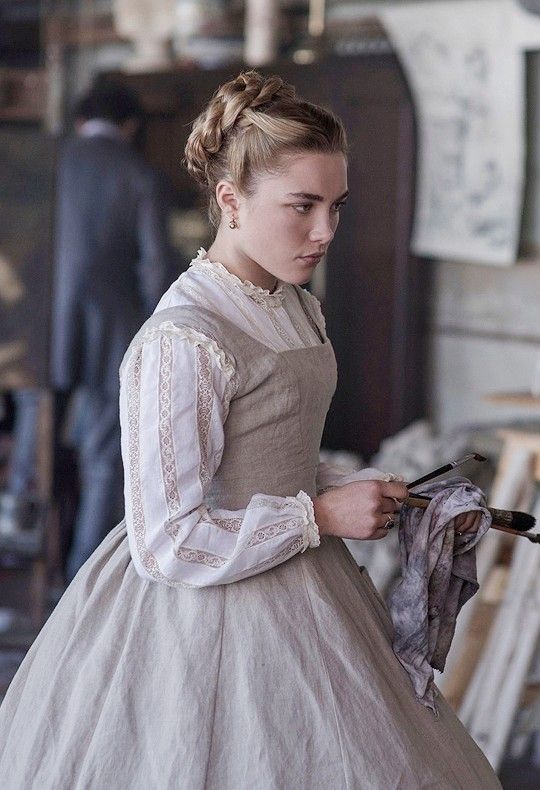
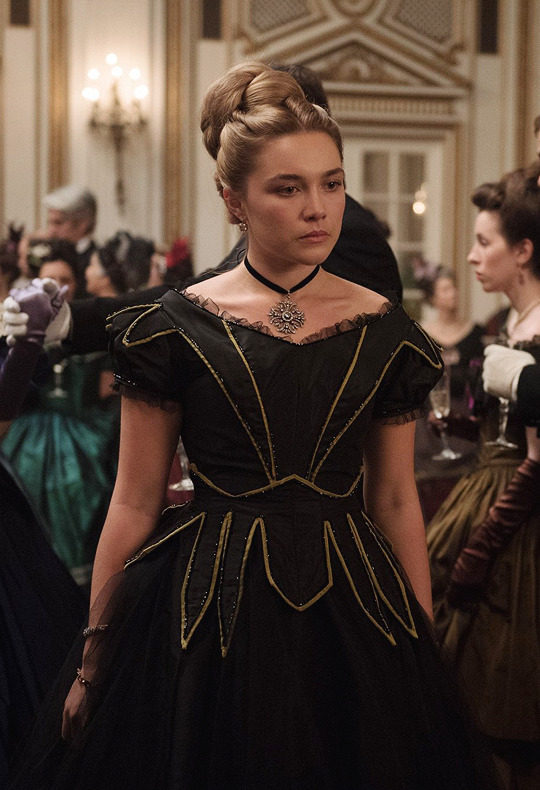
I found the costumes worn by Pugh, Streep and many extras in the Paris sequences very attractive and an elegant expression of fashion from the late 1860s. Otherwise, I found Durran’s costumes for this film rather questionable. I realize both she and Gerwig were attempting to portray the March family as some kind of 19th century version of "hippies". But even non-traditional types like the Marches would not wear their clothing in such a slap-dash manner with petticoat hems hanging below the skirts, along with bloomers showing, cuts and styles in clothing that almost seemed anachronistic, and wearing no corsets. The latter would be the equivalent of not wearing bras underneath one’s clothing in the 20th and 21st centuries. Someone had pointed out that many of today’s costume designers try to put a "modern twist" to their work in period dramas in order to appeal to modern moviegoers and television viewers. I really wish they would not. The attempt tends to come off as lazy costuming in my eyes. And this tactic usually draws a good deal of criticism from fans of period dramas. So . . . how on earth did Durran win an Oscar for her work in the first place? I understand that "LITTLE WOMEN" was filmed in various locations around Massachusetts, including Boston and Cambridge. A part of me felt a sense of satisfaction by this news, considering the story’s setting of Concord, Massachusetts. I was surprised to learn that even the Paris sequences were filmed in Ipswich, Massachusetts. However, I must admit that I was not particularly blown away by Yorick Le Saux's cinematography. Then again, I can say that for just about every adaptation of Alcott’s novel I have ever seen. There were scenes from "LITTLE WOMEN" that I found memorable. Those include Jo March’s initial meeting with her publisher Mr. Dashwood; Amy March’s conflict with Theodore "Laurie" Laurence over his behavior in Paris; Jo’s rejection of Laurie’s marriage proposal, and especially the montage featuring Beth March’s bout with scarlet fever and its consequences. However . . . I had some problems with Gerwig’s screenplay. As I have stated earlier, "LITTLE WOMEN" is not the first movie I have seen that utilized the non-linear plot technique. I have seen at least two adaptations of Charlotte Brontë’s 1847 novel, "Jane Eyre". Two more famous examples of this plot device were the 1995 film, "12 MONKEYS" and two of Christopher Nolan’s movies – 2000’s "MEMENTO" and 2017’s "DUNKIRK". How can I put this? I feel that Greta Gerwig’s use of non-linear writing had failed the film’s narrative. It simply did not work for me. Except for the brilliant montage featuring Beth’s fate, it seemed as if Gerwig’s writing had scattered all over the place without any real semblance of following Alcott’s plot. If I had not been already familiar with Alcott’s story, I would have found “LITTLE WOMEN” totally confusing. I also feel that because of Gerwig’s use of the non-linear technique, she managed to inflict a little damage on Alcott’s plot. Despite the excellent scene featuring Laurie’s marriage proposal, I felt that Gerwig had robbed the development of his relationship with Jo. I also believe that Gerwig had diminished Jo’s relationship with Professor Bhaer. In the film, Bhaer had expressed harsh criticism of Jo’s earlier writing . . . without explaining his opinion. But he never added that Jo had the potential to write better stories than her usual melodrama crap. Why did Gerwig deleted this aspect of Professor Bhaer’s criticism? In order to make him look bad? To set up the idea of Jo ending the story as a single woman, because that was Alcott’s original intent? Did Gerwig consider the original version of this scene a detriment to feminist empowerment? I am also confused as to why Gerwig allowed the March family to push her into considering Professor Bhaer as a potential mate for Jo? This never happened in the novel. Jo had come to her decision to marry the professor on her own prerogative. She did not have to be pushed into this decision. Come to think of it, how exactly did Jo’s fate end in the movie? I am confused. Did she marry Bhaer after rushing to the train station in order to stop him from leaving for California? Or did she remain single? Whatever. And why on earth did she position Amy and Laurie’s first meeting after the former’s hand had been caned by her school teacher? Gerwig had transformed an incident that had taught Amy a lesson about self-respect and generated the Marches’ righteous anger against a schoolteacher’s abuse to one of comic relief and a cute rom.com meet for Amy and Laurie. What the hell? Someone had once complained that Gerwig may have assumed that everyone was familiar with Alcott’s story when she wrote this screenplay. And I agree with that person. Earlier I had questioned the Academy of Motion Picture Arts and Sciences’ decision to award the Best Costume Design statuette to Jacqueline Durran and nominate Florence Pugh for Best Supporting Actress. But I also have to question the organization’s decision to nominate Gerwig’s writing for Best Adapted Screenplay. I honestly believe she did not deserve it. There were aspects of "LITTLE WOMEN" that I found admirable. I was certainly impressed by some of the film’s dramatic moments. And there were a handful of performances from the likes of Saoirse Ronan, Eliza Scanlen and Meryl Streep that truly impressed me. But I cannot deny that the other members of the cast gave either first-rate or solid performances. In the end, I did not like the movie. I believe "LITTLE WOMEN" should have never been nominated for Best Picture. Greta Gerwig’s use of the nonlinear technique did not serve Louisa May Alcott’s plot very well. If I had not been familiar with the novel’s plot, I would have found this movie confusing. Aside from Ronan’s Academy Award nomination for Best Actress, I feel that the other nominations and Best Costume Design win were undeserved. And a part of me feels a sense of relief that Gerwig had never received a nomination for Best Director.
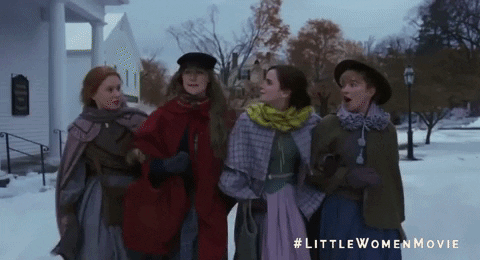
#louisa may alcott#little women#little women 2019#greta gerwig#saorise ronan#emma watson#florence pugh#eliza scanlen#laura dern#meryl streep#chris cooper#timothy chalamet#james norton#louis garrel#tracy letts#bob odenkirk#christopher nolan#u.s. civil war#period drama#period dramas#costume drama
13 notes
·
View notes
Text
English Planning System: New British Homes
New British Homes, English planning system, Building Houses in England, Virtual Committees
English Planning System Relaxation
5 May 2021
UK Government Scraps Virtual Planning Committees
Architect reacts to government decision to scrap virtual planning committees
Pete Ladhams, Managing Director, Assael Architecture, commented: “The Covid-19 crisis acted as an unlikely catalyst to finally cause change to the UK’s outdated planning system at pace. However, the decision not to extend powers enabling virtual planning committees will be a hugely backwards step.
“Whilst these measures were initially intended to be temporary, the feedback since implemented across the industry was overwhelmingly positive, with many recognising the advantages of a digitised planning process.
“The onus is now on the government to make sure we leverage the momentum created by this pandemic to reform the planning system fully and not miss this opportunity.”
Assael Architecture is an award-winning London-based practice that provides a cohesive suite of architecture, interior design, landscape architecture and visualisation services both in the UK and abroad. They work across a range of sectors, including hospitality, commercial and master planning, and specialise in residentially-led mixed-use schemes.
Assael designs homes across all tenures, from private-for-sale, private-for-rent, including ‘Build to Rent’ through low-cost, shared-equity and social-rented affordable homes. They approach all projects from the environmental, social and economic dimensions of sustainable design and often integrate uses from the leisure, retail and cultural industries to help deliver thriving communities.
3 August 2020
New UK Housing Delivery
Following housing secretary Robert Jenrick announcing in the Sunday Telegraph that Britain will get a new zonal planning system please find comment from Ken Dytor, founder of Urban Catalyst, the developer behind the £1bn regeneration of Purfleet-on-Thames town centre.
Ken Dytor previously held roles at the Crown Estate, British Land and British Property Federation and was recently appointed to the Thames Estuary Growth Board, which aims to add £115bn to UK GDP annually.
New planning rules risk infrastructure and housing delivery
Ken Dytor, founder and executive chairman of Urban Catalyst, said: “It’s encouraging that the government has put social infrastructure such as schools and hospitals alongside housing in its plans to speed up development.
“While the housing secretary is right the uninspiring design of some developments fuels NIMBYism, concerns over additional pressure on existing public services are typically another major driver behind local opposition to new development.
“Similarly encouraging is the drive to harness greater community participation in the planning process by embracing a more 21st century tech-savvy approach. This should hopefully lead to a wider range of voices being heard, resulting in more inclusive, balanced developments.
“However, if the government’s ‘build build build’ agenda is to align with its ‘levelling up’ promise we need to see regionally driven infrastructure linked to housing delivery to kick start both national and local growth.
“A great example are the strategies focused on unlocking the potential of the Thames Estuary region, such as the Thames Estuary Growth Board’s Green Blue plan and Thames Production Corridor, which seek to marry private and public sector expertise and tap into the growing power of industries such as the artistic, creative and media sectors.”
21 July 2020
New UK Planning Rules Relaxation
New planning rules risk creating substandard homes on high streets
Following the government’s move to relax permitted development rights and allow retail to residential conversions, please see a comment below from Rory O’Hagan, director at London-based practice Assael Architecture, on why the changes could be detrimental to our high streets and town centres.
Rory has significant expertise in working on converting complicated and constrained sites into mixed-use schemes. Assael’s notable projects include Essential Living’s Union Wharf scheme, Blackhorse Mills with Legal & General, and Pontoon Dock with Grainger and Linkcity.
Rory O’Hagan, director at Assael Architecture, said:
“The government’s relaxation of permitted development rights could do much for the revitalisation of our high streets and town centres. But there must be a cohesive government strategy and clear regulations in place to monitor the standard of homes and ensure it is done well. The need to reinvent the high street shouldn’t just be driven by an urge to reverse the decline of retail or to fast-track housing.
It should be about ensuring that town centres are places where people want to spend time, create new experiences, and live with high-quality, complementary housing. There needs to be a considered drive towards more mixed and blended developments, where retail uses are supported by additional purpose-built homes. By doing this, the onus is on creating desirable, amenity-rich locations with high-quality housing options for all.”
6 July 2020
Is ‘build build build’ best for England’s planning system?
Alister Scott, Professor of Environmental Geography and an expert in urban planning and infrastructure, writes for The Conversation on proposals to change the UK’s planning system.
Is ‘build build build’ really the best way forward for England’s planning system?
“Rip up planning red tape to spur house building,” says housing secretary Robert Jenrick, while Prime Minister Boris Johnson argues for a radical shake-up to the planning system to deliver on his “build build build” mantra. There’s a clear political message that England’s planning system is broken and needs change.
Such change should not be based on simply building more, but on an accurate diagnosis of the problems the planning system is experiencing and trying to solve. If it isn’t, there is a risk of a future prime minister saying again that the planning system is broken and in need of urgent reform.
After all, David Cameron in 2011 attacked the planning system as “the enemy of enterprise” and similarly embarked on a package of reforms to speed up housing delivery and economic growth and cut red tape. Yet consistently over 80% of planning applications are approved, challenging any simplistic presumptions that planning inhibits growth.
Political change has been a constant in England’s planning system. Since the landmark 1947 Town and Country Planning Act, some 360 pieces of planning legislation have been enacted. What’s more, since 1997 there have been 18 housing ministers, hindering policy consistency.
Managing change has been made more difficult with significant cuts to planning departments under austerity, compounded by incremental legislative changes that create the very complexity and delays that the government now complains about.
Today, calls for reform have been fuelled by a report by the right-wing thinktank Policy Exchange. With the country needing to build many more houses, the argument goes that replacing our plan-led system that assesses every application with a zoning system would reduce bureaucracy and help speed up decision-making.
There have already been some moves in this direction, with enterprise zones and brownfield “permission in principle” orders. Permitted development rights have enabled the government to fast-track more commercial-to-residential developments and housing extensions. Boris Johnson has just announced further loosening of the rules on converting other commercial establishments, shops and redundant premises into homes.
But these changes have already been criticised due to the growth of poor quality houses and flats with no windows, isolated from key services and infrastructure. Such homes would never have been given approval in the regular planning system, and also conflict with other policy considerations such as those of the advisory Building Better, Building Beautiful Commission.
Diagnosing the planning challenges
“Build build build” is the wrong starting point. Planning is dominated by a target of building 300,000 homes each year, and the prime minister’s rhetoric reinforces that narrative. But one simple quantity metric on housing is dangerous and limiting when planning encompasses so much more.
The planning system should instead be designed to address the long-term challenges and opportunities our society faces. And that means a more integrated quality-based approach based on a shared vision of the kind of places we want to live in. Let’s identify these challenges in more detail:
There is a housing challenge. Plenty of luxury flats are built but not enough affordable family homes. The key national priorities do not match the types of housing now being built and wanted by developers.
There is a climate challenge. We are not doing anything like enough to meet the 1.5℃ Paris target, with 3℃ or more of warming now more likely. The planning system needs to have strong policies that help the transition to a greener lower carbon future with higher priority given to retrofitting of existing housing stock.
There is a biodiversity challenge. The state of UK nature is declining year on year with many species on the brink of extinction. Biodiversity forms the backbone of viable ecosystems on which we depend on for basic necessities, security and health. This diversity makes us more resilient to change and uncertainty in much the same way as investing in a diverse range of stocks protects a financial portfolio from uncertainty.
There is a health challenge. Poor housing stock and noise and air pollution, along with a lack of access to key services, all affect physical and mental health.
There is a poverty and social justice challenge. The gap between the haves and have-nots is widening. Here child poverty is a major issue. The planning system was founded on the need for improved social justice, yet in recent years this has been conspicuously absent from policy.
There is a public engagement challenge. Ordinary people should be able to understand and engage with planning more effectively and help co-produce the kinds of sustainable places they want to live, work and play in. The current system is too complex and too adversarial. A key opportunity is for the public to be more involved in planning processes which should be based on modern interactive “e-planning” and not dense and static PDF files.
These challenges are all interlinked and collectively should form the key principles on which a better and more joined-up planning system should be built. However, what that planning system looks like is not for me or anyone to dictate in a top-down fashion. We urgently need better diagnoses of these challenges and integrated interventions, so that then we can then design better governance and delivery frameworks that are less complex and fragmented.
I fear that the government will continue on its present trajectory, based on the populist but fallacious presumption that planning is restricting housebuilding, and impose yet more change on a public sector ill-equipped to deal with it. In effect, the country lurches from one crisis to another. And that is definitely not good planning.
This article was originally published by The Conversation.
Northumbria is a research-rich, business-focused, professional university with a global reputation for academic excellence. Find out more about at www.northumbria.ac.uk
Related material
How to design and build better green environments in our towns and cities May 24, 2019 13:11 BST
The latest edition of the influential journal Town & Country Planning has been edited by a leading Environmental expert from Northumbria University, Newcastle. How can we put the green back into our urban spaces? Nov 06, 2017 16:47 GMT
The question of how to encourage city planners and developers to incorporate green spaces and infrastructure in our towns and cities is the subject of a £226,000 research project being run by Northumbria University.
English Planning System: New British Homes image / inforation from Northumbria University, Newcastle, UK, a research-rich, business-focussed, professional university with a global reputation for academic excellence
Previously on e-architect:
UK Housebuilding Policy
UK Architects welcome landmark ARCO Report
image courtesy of architects
New UK Housing for an ageing population
UK Housing Shortage photograph © swns.com
New UK Housing – British Housebuilding news
British Houses
UK Housing Links:
Housing Crisis
New London Housing
British Homes
British House Designs
English Architecture:
English Architecture Designs – chronological list
Location: UK
Contemporary British Homes
Recent British Housing Designs
Fleet Street Hill Housing Design: Peter Barber Architects image from architect Fleet Street Hill Housing
Murray Grove Housing Stadthaus photo : Will Pryce Murray Grove Housing
Recent British Home Designs
Black House, Kent, South East England Architect: AR Design Studio image courtesy of architects Black House in Kent
A House for Essex, Essex, South East England Design: FAT Architecture and Grayson Perry photograph : Jack Hobhouse A House for Essex
Balancing Barn, Suffolk, South East England Design: MVRDV photo : Living Architecture Balancing Barn Suffolk
Hurst House, Buckinghamshire, Southern England Design: John Pardey Architects with Ström Architects photo : Andy Matthews Buckinghamshire Property
Comments / photos for the English Planning System: New British Homes page welcome
The post English Planning System: New British Homes appeared first on e-architect.
1 note
·
View note
Text
Best Meryl Streep Musical Performances (Including The Prom!)
https://ift.tt/2JMbiJl
Who would have thought 30 years ago Meryl Streep would become the musical diva of our age? Maybe those who watched her bashfully (and beautifully) sing “You Don’t Know Me” in 1990’s Postcards from the Edge. But largely she was associated with the serious dramas of the ‘70s and ‘80s that won her two Oscars (and saw her nominated for three more) by the time she was 35: Kramer vs. Kramer, The Deer Hunter, Sophie’s Choice. Sober-eyed tearjerkers all.
But an amazing thing happened in the 21st century, didn’t it? Streep, the First Lady of the Academy Awards stage, reinvented herself as the prima donna of the musical-comedy. Sometimes that includes performances so rich that they sing even without any lyrics, such as the imperious Miranda Priestly in The Devil Wears Prada. But often they come with music and verse too, be it ham-fisted kitsch like Mamma Mia! or something as ambitious as playing the Witch in an adaptation of Stephen Sondheim’s Into the Woods.
And today she’s back on the musical big screen—or at least the one in your living room—via Ryan Murphy and Netflix’s The Prom. It’s an all-out musical extravaganza where Streep transcends into her best self: a reigning diva of Broadway. So join us as we use the occasion to count down her greatest cinematic solos.
10. “Changing Lives” in The Prom
For whatever faults The Prom might contain, the Netflix film’s vicious satire of celebrity vanity and performative social action is not one of them. And rarely is that better felt than in Meryl and James Corden’s first big number “Changing Lives.” As a pair of tone-deaf Narcissuses, Streep’s Dee Dee Allen and Corden’s Barry Glickman put on a hell of a show, singing from the lights of 44th St. to the glitzy interiors of Sardis about how being a Broadway star is basically the same thing as Eleanor and Franklin Delano Roosevelt.
Is it a great song? Not necessarily. Is it great to hear Streep exclaim she only wants to hear a review if it’s a rave or mixed-to-positive while downing champagne? Absolutely.
9. “Super Trouper” in Mamma Mia!
We know everyone has thoughts about Mammia Mia! and where its qualities (or sometimes lack thereof) lie. But Meryl Streep’s performance as Donna is inarguably one of its great strengths. Her matriarch of an idyllic little Greek island seems a far cry from the apparent free spirit and hellraiser she once was. Yet in “Super Trouper,” her young daughter (Amanda Seyfried) gets a glimpse of the dynamo Donna once was (and secretly still is) as she takes the disco stage alongside Julie Walters and Christine Baranski.
The trio still make the ‘70s excess of their outfits work, crooning about last nights in Glasgow and reawakening that magic for the next generation. Even Donna’s tuneless exes in the back get swept back in time. It’s sweet, and one of several Mamma Mia numbers to appear here.
8. “Goodbye to My Mama” in A Prairie Home Companion
One of the best films mentioned on this list, A Prairie Home Companion was director Robert Altman’s final film—and the movie appears aware of this. Nowhere is that more tangible in this heart-wringing ballad written in the tradition of early 20th century Country and Western music by Garrison Keillor. An ode to a childhood long gone, and both an aspiration and understated fear about seeing a lost mother again on the other side, the song is an elegy realized in soulful duet by Streep and Lily Tomlin. It harkens the Angel of Death backstage, but in isolation it’s still plenty heartbreaking.
7. “The Winner Takes It All” in Mamma Mia!
We said there’d be more ABBA. And here it is with “The Winner Takes It All,” Streep’s single actual solo. In this moment director Phyllida Lloyd knows exactly where to put the camera, capturing the postcard beauty of a Greek isle at sunset as Meryl sings her heart out, and smashes Pierce Brosnan’s for good measure. Appealingly melodramatic, and with perfect high notes for Streep’s range, the scene puts this Oscar winner in the movie equivalent of a romance novel cover. And who doesn’t want to open that?!
6. “It’s Not About Me” in The Prom
Again rarely does The Prom’s satire land better than in its opening number… but Streep’s big solo “It’s Not About Me” is that rare exception. Strutting into an Indiana PTA meeting in a red mink and extravagant mood, Streep’s Dee Dee introduces herself by belting that she’s here after reading three quarters of an article to ask, “You bigoted monsters, just who do you think you are?” And it’s all downhill from there for her argument, and uphill for our entertainment.
Hijacking a vulnerable teenager’s platform to whine about a New York Post notice and to demand soft lighting and a rainbow coalition of colorful streamers for her Insta-ready moment, Streep is given permission by The Prom to make everything about her. More, please.
5. “Stay with Me” in Into the Woods
Attempting to sing Sondheim is a challenge few take up lightly. With his typically complex lyrics, myriad key changes, and sharp musical bridges, Sondheim has thwarted many a movie star who’s tried. Streep is not one of them. As the villainous and somewhat misunderstood Witch of Into the Woods, Streep dominates the film as an antagonistic force who sees all the other fairy tale archetypes for the schmucks they are.
But that does not include her adopted daughter Rapunzel (Mackenzie Mauzy). As the daughter the Witch never had, Rapunzel is kept secluded away in the woods, but it’s for her own protection. Written years before Tangled, a mother’s fanged psychological warfare and pleas to “stay with me” from the danger in the world is as haunting as it is toxic. And it’s Streep’s best moment in Disney and Rob Marshall’s ambitious, yet bloated, movie adaptation.
4. “Dancing Queen” in Mamma Mia!
Yes, it’s that song and that scene: ABBA’s most overplayed earworm brought to treacly life with maximum cheese, including slow-motion shots of Meryl Streep jumping on a bed and skipping along a Greek coastline. Look over there! Why is that old fisherman playing a piano in the water?! And over here! Where did the hundreds of locals on this tiny, largely uninhabited island come from?!
Read more
Movies
Best Movie Musicals of the 21st Century
By David Crow
Movies
Hamilton Cast Reflect on Backlash and Criticism of Musical
By David Crow
It doesn’t matter! You know from the first time you heard Streep and company belt this that you sang along. You probably still do, joining in at the parade of empowered women, from ages two to 92, who’ve been liberated by the joy of their youth, now or remembered. As they dance badly across the world’s grooviest pier, it plays as loud; as camp; and as a goddamn delight.
3. “My Minnesota Home” in A Prairie Home Companion
Meryl Streep and Lily Tomlin’s other major duet in A Prairie Home Companion, “My Minnesota Home” reworks Stephen Foster’s “My Old Kentucky Home” to give it a Lake Wobegon tenor. It is also the sweetest showcase for Streep and Tomlin’s chemistry, both as singers and human beings. The give and take between the pair, and then Streep’s rousing vibrato during the final chorus, has the air of genuine inspiration and real pleasure. Here are two performers finding harmony together on the stage and before our eyes. It’s big hearted and irresistible.
2. “I’m Checking Out” in Postcards from the Edge
Meryl’s first major musical moment came during the grand finale of director Mike Nichols and screenwriter Carrie Fisher’s wonderful little dramedy. Loosely and nakedly based on Fisher’s own relationship with her movie star mother Debbie Reynolds, Postcards from the Edge is a revealing and sometimes blunt exercise in getting things off a writer’s chest. And one thing Fisher really wanted to clear the air about was her mother’s desire to push her toward musical performance. While Fisher resisted in her own life, she allows the fictional Suzanne Vale (Streep) to give in to mother Doris Mann (Shirley MacLaine).
Read more
Movies
Best 11 Classic Movie Musicals
By David Crow
Movies
Hamilton: The Real History of the Burr-Hamilton Duel
By David Crow
In doing so, she also gives into herself and sings this full-hearted rendition of “I’m Checking Out.” A country hymn to the bitterness of living in the heartbreak hotel, the song allows Suzanne (and hopefully Carrie) to bury some pain, and for Streep to reveal her formidable stage and screen presence in front of a microphone. It is probably the rawest and most intelligent performance on this list.
1. “Mamma Mia” in Mamma Mia!
Among Meryl Streep’s many songs in Mamma Mia!—including a few we did not put on this list, believe it or not—it’s her rendition of the movie’s title song that works best. Imbuing the tune with an infectious playfulness, and leaning into the impatience that pours from ABBA’s lyrics, Streep pounces around the screen like a cat who’s just spotted a bird… or at least three turkeys in the shapes of her exes (Pierce Brosnan, Colin Firth, and Stellan Skarsgård).
Read more
Culture
How Disney Saved Musicals for a New Generation
By David Crow
Movies
Hamilton: Thomas Jefferson Controversy Explained
By David Crow
As she creeps and creaks around their goathouse (don’t ask), debating whether to sneak another peak, the film finally makes sharp use of a movie’s ability to edit together imagery: We cut between Streep, the exiled suitors, Donna’s daughter and friends, and even an honest to Zeus Greek chorus of extras sticking their heads into the frame to chastise Streep. Not that she can resist her curiosity, nor do we resist watching it. In fact, we want to egg it on as Streep rolls around in overalls and crosses herself before embracing the next crescendo.
cnx.cmd.push(function() { cnx({ playerId: "106e33c0-3911-473c-b599-b1426db57530", }).render("0270c398a82f44f49c23c16122516796"); });
The post Best Meryl Streep Musical Performances (Including The Prom!) appeared first on Den of Geek.
from Den of Geek https://ift.tt/3oPKQxj
1 note
·
View note
Text
Hollywood Hillbillies, The Ballad of the Boomers.
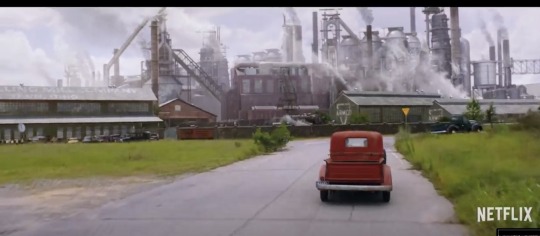
This image turned Norman Rockwell into a socialist.
Hollywood fed and bred celebrities are finally starting to wane much like franchise family restaurants, simple no-frills shotgun weddings, Budweiser, and egg-based mayonnaise, and for the most part, most American lives are probably not feeling impacted by this loss. In a world of Amy Adams and Glenn Closes two women in make believe professions whose biggest hurdle remains whether or not they will reap the Industry awards they so richly deserve, and seeing as real life underdogs give you fleas you might as well root for these Queens. For starters, one of these talented performers has BIG EYES, while the other is elegant and old, but not too old, and they are both perfectly fine at what they do. One thing millennials and mineral-based Americans are not kidding around about are award shows, because we’re all stabbing and shaving ourselves with all of the trophies that line the walls of each and every day spent doing our best. Egad, Josh Gad will one day get an Egot and a new species of animal is eradicated each and every day.
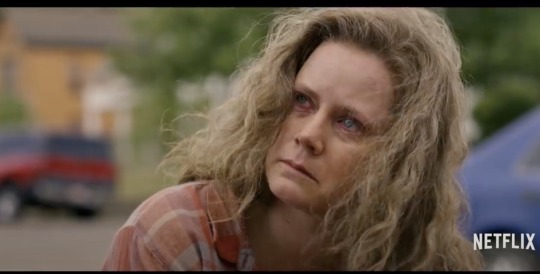
Wait I thought that the new Dark Crystal series was cancelled?
The trailer for the Ron Howard picture Hillbilly Elegy is coming in hot off the tepid and apathetic trails of a Star Wars film more forgotten than the Life Day special, Ron Howard also feels like a man awarded more and more opportunities for simply doing his best. Come gather around the Battle of the Boomers! In Netflix’s corner is a conservative personal parable of someone born and raised in Ohio warding off the festering influences of his parents Appalachian Kentuckian upbringing. According to the great powerful Wiki the book is concerned something of a conservative doggrel beating the same wife beater wearing fiction about the horrors of the Welfare Queen. As someone who recently became a welfare queen himself, as well as someone overcoming substance abuse issues I feel like a venture capitalist from Ohio and Okie’s golden son Ron fucking Howard are really going to get down to the real truth about poverty and substance abuse.
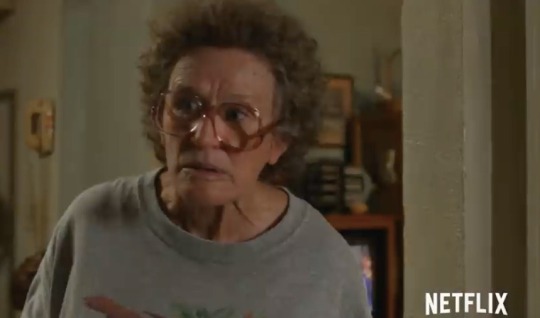
There are three types of Terminators in the World: Neutral Terminators, Good Terminators, and Bad Terminators. I’m Glenn Close.
Netflix and friends are the only buffet any of us without a death wish can frequent in the 21st century. As of the date of this writing Netflix has already released 85 a total Netflix Productions (not counting documentaries). This noticeable leap in quantity benefits from the amount of international non-English language movies spanning languages from Akan to, Netflix has gone from releasing only 2 movies to its name in 2015 up to 105 movies by the end of 2020. How many of these exercises in funny accents, prosthetic transformations, Horse Girls, Lost Girls, Tall Girls, Sweet Girls and The Girls I’ve Been can we claim to be really moved by? Will you remember me come next Girlfriend’s Day? You could keep stringing Netflix titles along and find some meaning or come up with nothing but a Bird Box. Nobody but Netflix has been releasing a movie or two or three a week, and that’s because Netflix dueling CEOs Ted Sarandos and Reed Hastings are cut throat dynamos of Men of industry who dared to ask, “What if movies, but on TV?”

Oh the Caucasity!
////////

Whereas, HBO asks no questions, stands completely nude (as ordained by HBO’s Ministry of Nudity) , and proud. HBO does not need to ask any questions, because they are the answer. HBO is the movies (as of 1982). HBO has been quietly churning out direct to TV movies in the years where the cineplex was becoming strictly for the Haus of Mouse and the Captain Reboot was dealing with his worst bout of necrophilia yet! This other movie I am discussing isn’t an HBO movie though, but an HBO Max feature. The first of a strange new breed. The other trailer in question to drop this week is by yet another historically Hollywood director is Bobby Zemeckis, who let’s be very clear is not directing the upcoming Roald Dahl Witches adaption he is only humbly re-imagining the material. So if this movie tanks like Marwen don’t blame Zemeckis, because he only re-imagined this one. As someone who has no soft spot in my skull for Dahl I am not coming to this project with anything but cautious fascination.
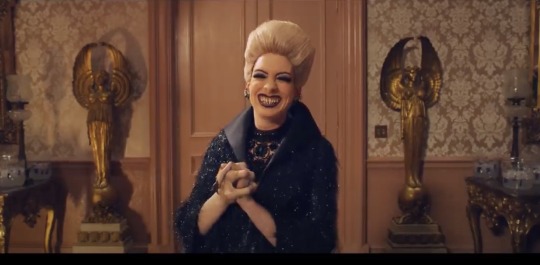
The look people give me when I tell that my favorite movie of all time is Alice Through The Looking Glass
Anne Hathaway and Amy Adams both talented actors that get under a lot of people’s skins in the way peculiar to successful women. I will say that Hathaway looks like she is having a lot more fun these days. At the very beginning of the year I had watched one of her more recent leading lady vehicles Colossal an indie movie dealing with alcoholism through emotional kaijus, a big foolish swing. Hathaway really succeeds for me whenever she is in Rachel Getting Married fuck up mode , and it looks like here on the Witches she’s back at being an actor having fun getting themselves dirty for the sake of expression. This looks like a performance built around a silly accent and prosthetics, but Hathaway is too startling a screen presence to be drownedout. Maybe I am actually really hyped for this frivolous dark family fantasy comedy? Or maybe I’m just really into horrifying animal transformations which the trailer doubles down on, which makes me believe that this is just the tip of the green screen abominations!
So if you’re am embittered actor out there that feels spent and drained of all naturalistic energy as the horizon of live performance fades further and further out of view. I implore these thespians to reach down into their silliest accent cabinet, for God’s sake make sure you’ve gotten rid of your racist silly accent drawer, and most importantly be very pretty so that the process of uglifying you is more of a process. Accomplish both of these grand feats, and maybe you too could be working alongside the classic American directors and studio wizards keeping the Dream alive by slathering their dolls and action figures in enough digital magic to close the circle. Movies are Dead! And the coroner is sorting through her wigs.

#netflix#hbo#Hillbilly effigy#the witches#Roald dahl#hollywood#americana#anne hathaway#Amy adams#glenn close#halloween#movies#trailers#upcoming
1 note
·
View note
Photo

Quentin Tarantino is one of the best directors of both the 20th and 21st Century, which started with his first wide release film in 1992. He has just recently released his 9th (or 10th depending on your point of view) film, Once Upon a Time... in Hollywood to rave reviews. As one of my favourite directors, I have decided to list rank each of his films. I want to first state that I love everything this man puts out, just some more than others. Lets begin.
*Spoilers below*

10. The Hateful Eight (2015)
The Hateful Eight is the least successful in Tarantino’s repertoire and I don’t mean financially. This film just seems to have little to no likeability, and before you say it, I do understand that each character is ‘hateful’ but at times it seems quite forced.
Though well written and acted, it feels that the shocking moments are put in there simply to shock rather than provide any interest. We have the story of eight characters trapped in a cabin during a snowstorm, the film is Western themed, there is a revenge plot as well a bounty hunter. I really do not think this is a bad film in any regard, and it even feels like the sister film to Reservoir Dogs, but in terms of style and content it feels like a mishmash of things the audience has seen before from the Director, like his greatest hits, rather than a new and original story.

9. Death Proof (2007)
A lot of critics, and even Tarantino himself, have put this as the lowest ranking of his films on their list, I disagree. This may not be the most fleshed out story, but it is one of the most fun. I am ranking the unrated version of the film, as the theatrical version was cut down from its 113 minutes to 87 minutes to be incorporated as the Grindhouse double feature (with Robert Rodriguez’s Planet Terror). The shorter version is the one critics saw and I don’t believe it does the full film justice.
Death Proof is inspired by Grindhouse revenge films such as I Spit on Your Grave and include a multitude of young starlets and even re-launched the career of actor Kurt Russell. Overall the film is quite good though there are instances where it is quite obvious that a man wrote the female dialogue, which in the Me-Too age isn’t as acceptable. An example of this can be read here, where this character speaks about her father:
“Look, he’s totally harmless and cute as a bug's ear! But you know, when he's got a bunch of half-naked poontang walking the floor of his lake house, he just likes to pay us a visit and make sure we got everything we need.”

8. Reservoir Dogs (1992)
Tarantino’s first full length film is the smallest scale of his career as most of it takes place in one room. Though the scale is small, the dialogue and action are immense, the characters fleshed out and, in most ways, stands the test of time. The film was well received by audiences and made more than twice its meager budget, but at times it is quite obvious this was shot by a new director still formulating his style. Tim Roth (as Mr. Orange) is excellent as the newest member of the gang and his relationship with Harvey Keitel (Mr. White) is one of the strongest bromances in cinema history.

7. Once Upon a Time… In Hollywood (2019)
Though advertised as an accurate biographical account of the Manson Murders in 1960s Hollywood, this film is actually more fictional, less about these murders and more a love letter to the actors of that time. The story is centred around director Roman Polanski and wife Sharon Tate’s fictional neighbour, actor Rick Dalton and his stunt man Cliff Booth (based screen legends Steve McQueen and Burt Reynolds and the latter’s stunt-double Hal Needham). The film explores how the two are struggling to adapt to the ever-changing Hollywood, paralleling with the growth of the Manson family who are interested with the Tate/Polanski household. Though a long film, it does quite well at showcasing the struggles of actors in Hollywood, the indulgence of the rich and the rise of a fanatic cult.
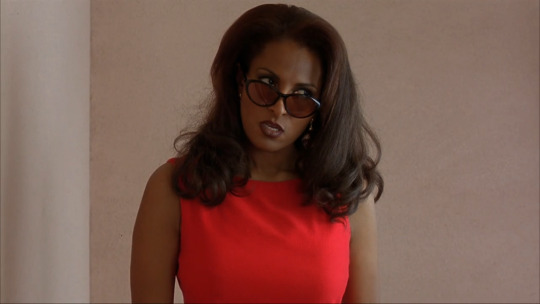
6. Jackie Brown (1997)
In the 1990s Tarantino was one of the biggest Directors around, he had won an Oscar for his writing and audiences were anxiously awaiting his third film. After acquiring the film rights to Elmore Leonard’s novel ‘Rum Punch’, Tarantino started writing Jackie Brown with the intent on giving the script to another director; however, Leonard loved the script so much Tarantino decided to direct himself.
Jackie Brown takes inspiration from Blaxploitation films like Coffy and Foxy Brown, though with a slower pace and using much less action. Pam Grier, star of both the aforementioned films, was Tarantino’s only choice for the lead role and to this day he is amazed that she was not nominated for an Oscar. The film is a slow burn compared to Tarantino’s previous two movies and does have its issues with pacing and story consistency but does contain more humour.

5. Kill Bill Vol. 1 (2003)
The Kill Bill films are two of the coolest of Tarantino’s career; from the opening Klingon proverb, to the Pussy Wagon to the schlocky gore, this film was every film geek’s dream. Tarantino promised Uma Thurman that her birthday present would be the lead in his next film and a year after promising her this he delivered her the script. Originally conceived as one long epic film, it was split into two by production as it was felt the first half of the film had a different tone to the second. Producers also wanted to ensure it was a box office success and a four-hour film in the modern age was too much of a gamble. The first Kill Bill provides the groundwork for what is rarely seen in Hollywood, an even better sequel.
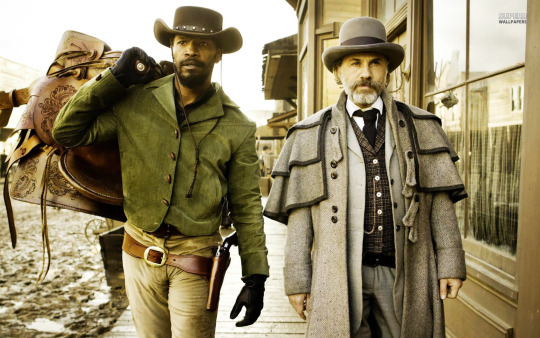
4. Django Unchained (2012)
Django is similar to the original film from 1966 in name only, as this version focuses on pre-American Civil War racism, slavery and the liberation a slave named Django. The film feels more like an homage to one of the biggest budget exploitation film of all time, Mandingo. It's a very simple story of a man who is trying to save his wife and along the way befriends a bounty hunter who aids him in his quest, but it is effective as it is a criticism of racism that still continues in the United States. Jamie Foxx does an excellent job portraying the titular character with Christoph Waltz, Leonardo DiCaprio and Samuel L. Jackson wonderfully playing the supporting roles.
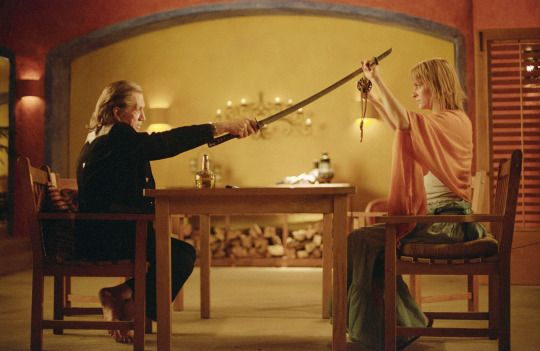
3. Kill Bill Vol. 2 (2004)
I will say there is a large debate in the fan community whether the Kill Bill films should be ranked together as one film (as Tarantino states they should be), or whether they are two separate entities of a franchise as well which one is the better of the two. Upon first watching the films I was a bit disappointed Volume 2 did not have the same amount of camp violence as the first, as this film feels to be more a Spaghetti Western revenge film rather than a Samurai thriller. However, upon the re-watching the film multiple times it is quite obvious through the dialogue, storytelling and excellent cinematography that this is the superior film and is a contender for the top spot of Tarantino’s filmography.
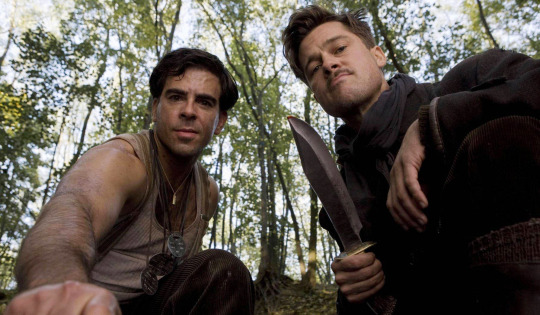
2. Inglourious Basterds (2009)
Inglorious Basterds is one of the films that not only has incredible star power but also has amazing gravitas. The film made Irish actor Michael Fassbender and German actor Christoph Waltz popular with American audiences with the latter’s excellent performance winning him the Oscar for Best Supporting Actor. The Basterds, a team of Jewish mercenary’s who capture, interrogate and kill Nazis and are played by a group of talents including Brad Pitt, Eli Roth and B.J. Novak. They are up against the evil Hans Landa (Waltz) also known as “The Jew Hunter”, a Nazi Colonel who is employed to ensure security for a film event being attended by Adolf Hitler. The film itself is a tribute to American war propaganda films from the 1940s, and though one of his most brutal, is truly one of Tarantino’s best writing efforts.

1. Pulp Fiction (1994)
I know this is the obvious choice, but with good reason. Pulp Fiction is the first film anyone thinks of when they think Tarantino. Made up of seemingly random story vignettes and inspired by pulp magazines, Tarantino devised to make a film made up of simple short stories that only later the viewer could see were actually intertwined. Tarantino proved he could make interesting films on a smaller scale with his critically acclaimed film Reservoir Dogs and was able to bring in major stars such as Bruce Willis, Uma Thurman, John Travolta and Samuel L. Jackson, the latter of whom would star in or have roles in most of his pictures. The film was a box-office success and won several awards including the Academy Award for best writing. Though Tarantino has had many excellent films in his career, Pulp Fiction will always be the most iconic and original.
#Tarantino#Quentin Tarantino#Film Review#2019#once upon in hollywood#pulp fiction#jackie brown#kill bill#uma thurman#samual l jackson#1990s#film#film history#exploitation#blaxploitation#leonardo dicaprio#brad pitt#margo robbie#reservoir dogs#death proof#gay#queer#violence#american cinema#kurt russell#christoph waltz#michael fassbender#films#action films#rated r
86 notes
·
View notes
Link

Photo: Emily Denniston/Vulture and photos courtesy of the studios
Keanu Reeves has been a movie star for more than 30 years, but it seems like only recently that journalists and critics have come to acknowledge the significance of his onscreen achievements. He’s had hits throughout his career, ranging from teen comedies (Bill & Ted’s) to action franchises (The Matrix, John Wick), yet a large part of the press has always treated these successes as bizarre anomalies. And that’s because we as a society have never been able to understand fully what Reeves does that makes his films so special.
In part, this disconnect is the lingering cultural memory of Reeves as Theodore Logan. No matter if he’s in Speed or Bram Stoker’s Dracula or Something’s Gotta Give, he still possesses the fresh-faced openness that was forever personified by Ted’s favorite expression: “Whoa!” That wide-eyed exclamation has been Reeves’s official trademark ever since, and its eternal adolescent naïveté has kept him from being properly judged on the merits of his work.
Some of that critical reassessment has been provided, quite eloquently, by Vulture’s own Angelica Jade Bastién, who has argued for Reeves’s greatness as an action star and his importance to The Matrix (and 21st-century blockbusters in general). Two of her observations are worth quoting in full, and they both have to do with how he has reshaped big-screen machismo. In 2017, she wrote, “What makes Reeves different from other action stars is this vulnerable, open relationship with the camera — it adds a through-line of loneliness that shapes all his greatest action-movie characters, from naïve hotshots like Johnny Utah to exuberant ‘chosen ones’ like Neo to weathered professionals like John Wick.” In the same piece, Bastién noted: “By and large, Hollywood action heroes revere a troubling brand of American masculinity that leaves no room for displays of authentic emotion. Throughout Reeves’s career, he has shied away from this. His characters are often led into new worlds by women of far greater skill and experience … There is a sincerity he brings to his characters that make them human, even when their prowess makes them seem nearly supernatural.”
In other words, the femininity of his beauty — not to mention his slightly odd cadence when delivering dialogue, as if he’s an alien still learning how Earthlings speak — has made him seem bizarre to audiences who have come to expect their leading men to act and carry themselves in a particular way. Critics have had a difficult time taking him seriously because it was never quite clear if what he was doing — or what was seemingly “missing” from his acting approach — was intentional or a failing.
This is not to say that Reeves hasn’t made mistakes. While putting together this ranking of his every film role, we noticed that there was an alarmingly copious number of duds — either because he chose bad material or the filmmakers didn’t quite know what to do with him. But as we prepare for the release of the third John Wick installment, it’s clear that his many memorable performances weren’t all just flukes. From Dangerous Liaisons to Man of Tai Chi — or River’s Edge to Knock Knock — he’s been on a journey to grow as an actor while not losing that elemental intimacy he has with the viewer. Below, we revisit those performances, from worst to best.
45. Johnny Mnemonic (1995)
The nadir of the ’90s cyberpunk genre, and a movie so bad, with Reeves so stranded, that it’s actually a bit of a surprise the Wachowskis were able to forget about it and still cast him as Neo. Dumber than a box of rocks, it’s a movie about technology and the internet — based on a William Gibson story! — that seems to have been made by people who had never turned on a computer before. Seriously, watch this shit:
44. The Watcher (2000) This movie exists in many ways because of its stunt casting: James Spader as a dogged detective and Keanu as the serial killer obsessed with him. Wait, shouldn’t those roles be switched? Get it? There would come a time in his career when Keanu could have maybe handled this character, but here, still with his floppy Ted Logan hair, he just looks ridiculous. The hackneyed screenplay does him no favors, either. Disturbingly, Reeves claims that he was forced to do this movie because his assistant forged his signature on a contract. He received the fifth of his seven Razzie nominations for this film. (He has yet to win and hasn’t been nominated in 17 years. In fact, it’s another sign of how lame the Razzies are that he got a “Redeemer” award in 2015, as if he needed to “redeem” anything to those people.)
43. Sweet November (2001) It’s a testament to how cloying and clunky Sweet November is that its two leads (Reeves and Charlize Theron) are, today, the pinnacle of action-movie cool — thanks to the same filmmaker, Atomic Blonde and John Wick’s David Leitch — yet so inert and waxen here. This is a career low point for both actors, preying on their weak spots. Watching it now, you can see there’s an undeniable discomfort on their faces: If being a movie star means doing junk like this, what’s the point? They’d eventually figure it all out.
42. Chain Reaction (1996) As far as premises for thrillers go, this isn’t the worst idea: A team of scientists are wiped out — with their murder pinned on poor Keanu — because they’ve figured out how to transform water into fuel. (Hey, Science, it has been 23 years. Why haven’t you solved this yet?) Sadly, this turns into a by-the-numbers chase flick with Reeves as Richard Kimble, trying to prove his innocence while on the run. He hadn’t quite figured out how to give a project like this much oomph yet, so it just mostly lies around, making you wish you were watching The Fugitive instead.
41. 47 Ronin (2013) In 2013, Reeves made his directorial debut with a Hong Kong–style action film. We’ll get into that one later, because it’s a ton better than this jumbled mess, a mishmash of fantasy and swordplay that mostly just gives viewers a headache. Also: This has to be the worst wig of Keanu’s career, yes?
40. Even Cowgirls Get the Blues (1993)
Gus Van Sant’s famously terrible adaptation of Tom Robbins’s novel never gets the tone even close to right, and all sorts of amazing actors are stranded and flailing around. Reeves gets some of the worst of it: Why cast one of the most famously chill actors on the planet and have him keep hyperventilating?
39. Replicas (2019) In the wake of John Wick’s success, Keanu has had the opportunity to sleepwalk through some lesser sci-fi actioners, and this one is particularly sleepy. The idea of a neuroscientist (Reeves) who tries to clone his family after they die in an accident could have been a Pet Sematary update, but the movie insists on an Evil Corporation plot that we’ve seen a million times before. John Wick has allowed Reeves to cash more random checks than he might have ten years ago. Here’s one of them.
38. Feeling Minnesota (1996) As far as we know, the only movie taken directly from a Soundgarden lyric — unless we’re missing a superhero named “Spoonman” — is this pseudo-romantic comedy that attempts to be cut from the Tarantino cloth but ends up making you think everyone onscreen desperately needs a haircut and a shave. Reeves can tap into that slacker vibe if asked to, but he requires much better material than this.
37. Little Buddha (1994)
To state the obvious, it would not fly today for Keanu Reeves to play Prince Siddhartha, a monk who would become the Buddha. But questions of cultural appropriation aside, you can understand what drew The Last Emperor director Bernardo Bertolucci to cast this supremely placid man as an iconic noble figure. Unfortunately, Little Buddha never rises above a well-meaning, simplistic depiction of the roots of a worldwide religion, and the effects have aged even more poorly. Nonetheless, Reeves is quite accomplished at being very still.
36. Much Ado About Nothing (1993) Quick anecdote: We saw this Kenneth Branagh adaptation of the Bard during its original theatrical run, and when Reeves’s villainous Don John came onscreen and declared, “I am not of many words,” the audience clapped sarcastically. That memory stuck because it encapsulates viewers’ inability in the early ’90s to see him as anything other than a dim SoCal kid. Unfortunately, his performance in Much Ado About Nothing doesn’t do much to prove his haters wrong. As an actor, he simply didn’t have the gravitas yet to pull off this fiendish role, and so this version is more radiant and alive when he’s not onscreen. It is probably just as well his character doesn’t have many words.
35. Bram Stoker’s Dracula (1992) GIFs are a cheap way to critique a performance. After all, acting is a complicated, arduous discipline that shouldn’t be reduced to easy laughs drawn from a few seconds of film played on a loop. Then again …
This really does sum up Reeves’s unsubstantial performance as Jonathan Harker, whose new client is definitely up to no good. Bram Stoker’s Dracula is a wonder of old-school special effects and operatic passion — and it is also a movie in which Reeves seems wholly ill at ease, never quite latching onto the story’s macabre period vibe. We suspect if he could revisit this role now, he’d be far more commanding and engaged. But in 1992, he was still too much Ted and not enough anything else. And Reeves knew it: A couple years later, when asked to name his most difficult role to that point, he said, “My failure in Dracula. Totally. Completely. The accent wasn’t that bad, though.” Well …
34. The Neon Demon (2016)
One of the perks of being a superstar is that you can sometimes just phone in an amusing cameo in some bizarro art-house offering. How else to explain Reeves’s appearance in this stylish, empty, increasingly surreal psychological thriller from Drive director Nicolas Winding Refn? He plays Hank, a scumbag motel manager whose main job is to add some local color to this portrait of the cutthroat L.A. fashion scene. If you’ve been waiting to hear Keanu deliver skeezy lines like “Why, did she send you out for tampons, too?!” and “Real Lolita shit … real Lolita shit,” The Neon Demon is the film for you. He’s barely in it, and we wouldn’t blame him if he doesn’t even remember it.
33. The Lake House (2006) Reeves reunites with his Speed co-star for a movie that features a lot fewer out-of-control buses. In The Lake House, Sandra Bullock plays a doctor who owns a lake house with the strangest magical power: She can send and receive letters from the house’s owner from two years prior, a dashing architect (Reeves). This American remake of the South Korean drama Il Mare is romantic goo that’s relatively easy to resist, and its ruminations on fate, love, destiny, and luck are all pretty standard for the genre. As for those hoping to enjoy the actors’ rekindled chemistry, spoiler alert: They’re not onscreen that much together.
32. Henry’s Crime (2011) You have to be careful not to cast Reeves as too passive a character; he’s so naturally calm that if he just sits and reacts to everything, and never steps up, your movie never really gets going. That’s the case in this heist movie about an innocent man (Reeves) who goes to jail for a crime he didn’t commit and then plans a scam with an inmate he meets there (James Caan). The movie wants to be a little quirkier than it is, and Reeves never quite snaps to. The film just idles on the runway.
31. The Bad Batch (2017) Following her acclaimed A Girl Walks Home Alone at Night, filmmaker Ana Lily Amirpour plops us in the middle of a desert hellscape in which a young woman (Suki Waterhouse) must battle to stay alive. The Bad Batch is less accomplished than A Girl, in large part because style outpaces substance — it’s a movie in which clever flourishes and indulgent choices rule all. Look no further than Reeves’s performance as the Dream, a cult leader who oversees the only semblance of civilization in this post-apocalyptic world. It’s less a character than an attitude, and Reeves struggles to make the shtick fly. He’s too goofy a villain for us to really feel the full measure of his monstrousness.
30. Hardball (2001)
Reeves isn’t the first guy you’d think of to head up a Bad News Bears–style inspirational sports movie, and he doesn’t pull it off, playing a gambler who becomes the coach of an inner-city baseball team and learns to love, or something. It’s as straightforward and predictable an underdog sports movie as you’ll find, and it serves as a reminder that Reeves’s specific set of skills can’t be applied to just any old generic leading-man role. The best part about the film? A 14-year-old Michael B. Jordan.
29. Street Kings (2008) Filmmaker David Ayer has made smart, tough L.A. thrillers like Training Day (which he wrote) and End of Watch (which he wrote and directed). Unfortunately, this effort with Reeves never stops being a mélange of cop-drama clichés, casting the actor as Ludlow, an LAPD detective who’s starting to lose his moral compass. This requires Reeves to be a hard-ass, which never feels particularly convincing. Street Kings is bland, forgettable pulp — Reeves doesn’t enliven it, getting buried along with the rest of a fine ensemble that includes Forest Whitaker, Hugh Laurie, and a pre-Captain America Chris Evans.
28. Constantine (2005) In post-Matrix mode, Reeves tries to launch another franchise in a DC Comics adaptation about a man who can see spirits on Earth and is doomed to atone for a suicide attempt by straddling the divide twixt Heaven and Hell. That’s not the worst idea, and at times Constantine looks terrific, but the movie doesn’t have enough wit or charm to play with Reeves’s persona the way the Wachowskis did.
27. The Day the Earth Stood Still (2008) Reeves’s alienlike beauty and off-kilter line readings made him an obvious choice to play Klaatu, an extraterrestrial who assumes human form when he arrives on our planet. This remake of the 1950s sci-fi classic doesn’t have a particularly urgent reason to exist — its pro-environment message is timely but awkwardly fashioned atop an action-blockbuster template — and the actor alone can’t make this Day particularly memorable. Still, there are signs of the confident post-Matrix star he had become, which would be rewarded in a few years with John Wick.
26. Knock Knock (2015) Reeves flirts with Michael Douglas territory in this Eli Roth erotic thriller that’s not especially good but is interesting as an acting exercise. He plays Evan, a contented family man with the house to himself while his wife and kids are out of town. Conveniently, two beautiful young strangers (Ana de Armas, Lorenza Izzo) come by late one stormy night, inviting themselves in and quickly seducing him. Is this his wildest sexual fantasy come to life? Or something far more ominous? It’s fun to watch Reeves be a basic married suburban dude who slowly realizes that he’s entered Hell, but Knock Knock’s knowing trashiness only takes this cautionary tale so far.
25. The Devil’s Advocate (1997)
Very few people bought tickets in 1997 for The Devil’s Advocate to see Keanu Reeves: Hotshot Attorney. Obviously, this horror thriller’s chief appeal was witnessing Al Pacino go over the top as Satan himself, who just so happens to be a New York lawyer. Nonetheless, it’s Reeves’s Kevin Lomax who’s actually the film’s main character; recently moved to Manhattan with his wife (Reeves’s future Sweet November co-star, Charlize Theron), he’s the new hire at a prestigious law firm who only later learns what nefarious motives have brought him there. Reeves is forced to play the wunderkind who gets in over his head, and it’s not entirely convincing — and that goes double for his southern accent.
24. The Prince of Pennsylvania (1988) “You are like some stray dog I never should have fed.” That’s how Rupert’s older hippie pal, Carla (Amy Madigan), affectionately refers to him, and because this teen dropout is played by Keanu Reeves, you understand what she means. In this forgotten early chapter in Reeves’s career, Rupert and Carla decide to ditch their going-nowhere Rust Belt existence by taking his dad (Fred Ward) hostage and collecting a handsome ransom. The Prince of Pennsylvania is a thoroughly contrived and mediocre comedy, featuring Reeves with an incredibly unfortunate haircut. (Squint and he looks like the front man for the Red Hot Chili Peppers.) Still, you can see signs of the soulfulness and vulnerability he’d later harness in better projects. He’s very much a big puppy looking for a home.
23. The Last Time I Committed Suicide (1997) Every hip young ’90s actor had to get his Jack Kerouac on at some point, so it would seem churlish to deny Reeves his opportunity. He plays the best pal/drinking buddy of Thomas Jane’s Neal Cassady, and he looks like he’s enjoying doing the Kerouac pose. Other actors have done so more indulgently. And even though he’s heavier than he’s ever been in a movie, he looks great.
22. A Walk in the Clouds (1995) Keanu isn’t quite as bad in this as it seemed at the time. He’s miscast as a tortured war veteran who finds love by posing as the husband of a pregnant woman, but he doesn’t overdo it either: If someone’s not right for a part, you’d rather them not push it, and Keanu doesn’t. Plus, come on, this movie looks fantastic: Who doesn’t want to hang around these vineyards? Not necessarily worth a rewatch, but not the disaster many consider it.
21. The Replacements (2000) The other movie where Keanu Reeves plays a former quarterback, The Replacements is an adequate Sunday-afternoon-on-cable sports comedy. He plays Shane, the stereotypical next-big-thing whose career capsized after a disastrous bowl game — but fear not, because he’s going to get a second chance at gridiron glory once the pros go on strike and the greedy owners decide to hire scabs to replace them. Reeves has never been particularly great at playing regular guys — his talent is that he seems different, more special, than you or me — but he ably portrays a good man who’s had to live with disappointment. The Replacements pushes all the predictable buttons, but Reeves makes it a little more enjoyable than it would be otherwise.
20. Tune in Tomorrow (1990) A very minor but sporadically charming bauble about a radio soap-opera scriptwriter (Peter Falk) who begins chronicling an affair between a woman (Barbara Hershey) and her not-related-by-blood nephew on his show — and ultimately begins manipulating it. Tune in Tomorrow is light and silly and harmless, and Reeves shows up on time to set and looks extremely eager to impress. He blends into the background quietly, which is probably enough.
19. I Love You to Death (1990)
This Lawrence Kasdan comedy — the first film after an incredible four-picture run of Body Heat, The Big Chill, Silverado, and The Accidental Tourist — is mostly forgotten today, and for good reason: It’s a farce that mostly features actors screaming at each other and calling it “comedy.” But Reeves hits the right notes as a stoned hit man, and it’s amusing just to watch him share the screen with partner William Hurt. This could have been the world’s strangest comedy team!
18. Youngblood (1986)
This Rob Lowe hockey comedy is … well, a Rob Lowe hockey comedy, but we had to include it because a 21-year-old Reeves plays a dim-bulb, good-hearted hockey player with a French Canadian accent that’s so incredible that you really just have to see it. Imagine if this were the only role Keanu Reeves ever had? It’s sort of amazing. “AH-NEE-MAL!”
17. Destination Wedding (2018) An oddly curdled comedy about two wedding guests (Reeves and Winona Ryder) who have terrible attitudes about everything but end up bonding over their universal disdain for the planet and everyone on it. That sounds like a chore to watch, and at times it is, but the pairing of Reeves and Ryder has enough nostalgic Gen-X spark to it that you go along with them anyway. With almost any other actors you might run screaming away, but somehow, in spite of everything, you find them both likable.
16. Thumbsucker (2005)
The first film from 20th Century Women and Beginners’ Mike Mills, this mild but clever coming-of-age comedy adaptation of a Walter Kirn novel has Mills’s trademark good cheer and emotional honesty. Reeves plays the eponymous thumbsucker’s dentist — it’s funny to see Keanu play someone named “Dr. Perry Lyman” — who has the exact right attitude about both orthodontics and life. It’s a lived-in, funny performance, and a sign that Keanu, with the right director, could be a more than capable supporting character actor.
15. Something’s Gotta Give (2003) This Nancy Meyers romantic comedy was well timed in Reeves’s career. A month after the final Matrix film hit theaters, Something’s Gotta Give arrived, offering us a very different Keanu — not the intense, sci-fi action hero but rather a charming, low-key love interest who’s just the supporting player. He plays Julian Mercer, a doctor administering to shameless womanizer Harry Sanborn (Jack Nicholson), who’s dating a much younger woman (Amanda Peet), who just so happens to be the daughter of a celebrated playwright, Erica (Diane Keaton). We know who will eventually end up with whom in Something’s Gotta Give, but Reeves proves to be a great romantic foil, wooing Erica with a grown-up sexiness the actor didn’t possess in his younger years. We’re still not sure Meyers got the ending right: Erica should have stuck with him instead of Harry.
14. Man of Tai Chi (2013) This is the only movie that Reeves has directed, and what does it tell us about him? Well, it tells us he has watched a ton of Hong Kong action movies and always wanted to make one himself. And it’s pretty good! It’s technically proficient, it has a straightforward narrative, it has some excellent long-take action sequences (as we see in John Wick, Keanu isn’t a quick-cut guy; he likes to show his work), and it has a perfectly decent Keanu performance. We wouldn’t call him a visionary director by any stretch of the imagination. But we’d watch another one of these, definitely.
13. Dangerous Liaisons (1988)
Le Chevalier Raphael Danceny is merely a pawn in a cruel game being played by Marquise de Merteuil and Vicomte de Valmont, and so it makes some sense that the young man who played him, Keanu Reeves, is himself a little outclassed by the actors around him. This Oscar-winning drama is led by Glenn Close and John Malkovich, who have the wit and bite to give this 18th-century tale of thwarted love and bruised pride some real zest. By comparison, Danceny is practically a boy, unschooled in the art of manipulation, and Reeves provides the character with the appropriate youthful naïveté. He’s not a standout in Dangerous Liaisons, but he acquits himself well — especially near the end, when his blade fells Valmont, leaving him as one of the unlikely survivors in the film’s ruthless battle.
12. The Private Lives of Pippa Lee (2009) In this incredible showcase for Robin Wright, who plays a woman navigating a constrictive, difficult life with more grace and intelligence than anyone realizes, Reeves shows up late in a role that he’s played before: the younger guy who’s the perfect fit for an older woman figuring herself out. He hits the right notes and never overstays his welcome. As a romantic lead, less is more for Reeves.
11. Parenthood (1989) If you were an uptight suburban dad, like Steve Martin is in Ron Howard’s ensemble comedy, your nightmare would be that your beloved daughter gets involved with a doofus like Tod. Nicely played by Keanu Reeves, the character is the embodiment of every slacker screwup who’s going to just stumble through life, knocking over everything and everyone in his path. But as it turns out, he’s a lot kinder and mature than at first glance. Released six months after Bill & Ted’s Excellent Adventure, Parenthood showed mainstream audiences a more grown-up Reeves, and he’s enormously appealing — never more so than when advising a young kid that it’s okay to masturbate: “I told him that’s what little dudes do.”
10. Permanent Record (1988) A very lovely and sad movie that’s nearly forgotten today, Permanent Record, directed by novelist Marisa Silver, features Reeves as the best friend of a teenager who commits suicide and, along with the rest of their friends, has to pick up the pieces. For all of Reeves’s trademark reserve, there is very little restraint here: His character is devastated, and Reeves, impressively, hits every note of that grief convincingly. You see this guy and you understand why everyone wanted to make him a star. This is a very different Reeves from now, but it’s not necessarily a worse one.
9. Point Break (1991)
Just as Reeves’s reputation has grown over time, so too has the reputation of this loopy, philosophical crime thriller. Do people love Point Break ironically now, enjoying its over-the-top depiction of men seeking a spiritual connection with the world around them? Or do they genuinely appreciate the seriousness that director Kathryn Bigelow brought to her study of lonely souls looking for that next big rush — whether through surfing or robbing banks? The power of Reeves’s performance is that it works both ways. If you want to snicker at his melodramatic turn, fine — but if you want to marvel at the rapport his Johnny Utah forms with Patrick Swayze (Bodhi), who only feels alive when he’s living life to the extreme, then Point Break has room for you on the bandwagon.
8. Bill and Ted’s Excellent Adventure (1989) and Bill and Ted’s Bogus Journey (1991) Before there was Beavis and Butt-Head, before there was Wayne and Garth, there were these guys: two Valley bozos who loved to shred and goof off. As Theodore Logan, Keanu Reeves found the perfect vessel for his serene silliness, playing well off Alex Winter’s equally clueless Bill. But note that Bill and Ted aren’t jerks — watch Excellent Adventure now and you’ll be struck by how incredibly sunny its humor is. Later in his career, Reeves would show off a darker, more brooding side, but here in Excellent Adventure (and its less-great sequel Bogus Journey) he makes blissful stupidity endearing.
7. The Gift (2000) This Sam Raimi film, with a Billy Bob Thornton script inspired by his mother, fizzled at the box office, despite a top-shelf cast: It’s probably not even the first film called The Gift you think of when we bring it up. But, gotta say, Reeves is outstanding in it, playing an abusive husband and all-around sonuvabitch who, nevertheless, might be unfairly accused of murder, a fact only a psychic (Cate Blanchett) understands. Reeves is full-on trailer trash here, but he brings something new and unexpected to it: a sort of bewildered malevolence, as if he’s moved by forces outside of his control. More of this, please.
6. My Own Private Idaho (1991)
Gus Van Sant’s landmark drama is chiefly remembered for River Phoenix’s nakedly anguished performance as Mike, a spiritually adrift gay hustler. (Phoenix’s death two years after My Own Private Idaho’s release only makes the portrayal more heartbreaking.) But his performance doesn’t work without a doubles partner, which is where Reeves comes in. Playing Scott, a fellow hustler and Mike’s best friend, Reeves adeptly encapsulates the mind-set of a young man content to just float through life. Unlike Mike, he knows he has a fat inheritance in his future — and also unlike Mike, he’s not gay, unable to share his buddy’s romantic feelings. Phoenix deservedly earned most of the accolades, but Reeves is terrific as an unobtainable object of affection — inviting, enticing, but also unknowable.
5. Speed (1994)
Years later, we still contend that Speed is a stupid idea for a movie that, despite all logic (or maybe because of the utter insanity of its premise), ended up being a total hoot. What’s clear is that the film simply couldn’t have worked if Reeves hadn’t approached the story with straight-faced sincerity: His L.A. cop Jack Traven is a ramrod-serious lawman who is going to do whatever it takes to save those bus passengers. Part of the pleasure of Speed is how it constantly juxtaposes the life-or-death stakes with the high-concept inanity — Stay above 50 mph or the bus will explode! — and that internal tension is expressed wonderfully by Reeves, who invests so intently in the ludicrousness that the movie is equally thrilling and knowingly goofy. And it goes without saying that he has dynamite chemistry with Sandra Bullock. Strictly speaking, you probably shouldn’t flirt this much when you’re sitting on top of a bomb — but it’s awfully appealing when they get their happy ending.
4. River’s Edge (1987) This film’s casting director said she cast Reeves as one of the dead-end kids who learn about a murder and do nothing “because of the way he held his body … his shoes were untied, and what he was wearing looked like a young person growing into being a man.” This was very much who the early Reeves was, and River’s Edge might be his darkest film. His vacancy here is not Zen cool … it’s just vacant, intellectually, ethically, morally, emotionally. Only in that void could Reeves be this terrifying. This is definitely a performance, but it never feels like acting. His magnetism was almost mystical.
3. John Wick (2014), John Wick: Chapter Two (2017), and John Wick: Chapter 3 — Parabellum (2019)
If they hadn’t killed his dog, none of this would have happened. Firmly part of the “middle-aged movie stars playing mournful badasses” subgenre that’s sprung up since Taken, the John Wick saga provides Reeves with an opportunity to be stripped-down but not serene. He’s a lethal assassin who swore to his dead wife that he’d put down his arms — but, lucky for us, he reneges on that promise after he’s pushed too far. Whereas in his previous hits there was something detached about Reeves, here’s he locked in in such a way that it’s both delightful and a little unnerving. The 2014 original was gleefully over-the-top already, and the sequels have only amped up the spectacle, but his genuine fury and weariness felt new, exciting, a revelation. Turns out Keanu Reeves is frighteningly convincing as a guy who can kill many, many people.
2. A Scanner Darkly (2006)
In hindsight, it seems odd that Keanu Reeves and Richard Linklater have only worked together once — their laid-back vibes would seemingly make them well suited for one another. But it makes sense that the one film they’ve made together is this Philip K. Dick adaptation, which utilizes interpolated rotoscoping to tell the story of a drug cop (Reeves) who’s hiding his own addiction while living in a nightmarish police state. That wavy, floating style of animation nicely complements A Scanner Darkly’s sense of jittery paranoia, but it also deftly mimics Reeves’s performance, which seems to be drifting along on its own wavelength. If in the Matrix films, he manages to defeat the dark forces, in this film they’re too powerful, leading to a pretty mournful finale.
1. The Matrix (1999), The Matrix Reloaded (2003), and The Matrix Revolutions (2003)
“They had written something that I had never seen, but in a way, something that I’d always hoped for — as an actor, as a fan of science fiction.” That’s how Reeves described the sensation of reading the screenplay for The Matrix, which had been dreamed up by two up-and-coming filmmakers, Lana and Lilly Wachowski. Five years after Speed, he found his next great project, which would become the defining role of his career. Neo is the missing link between Ted’s Zen-like stillness and John Wick’s lethal efficiency, giving us a hero’s journey for the 21st century that took from Luke Skywalker and anime with equal aplomb. Never before had the actor been such a formidable onscreen presence — deadly serious but still loose and limber. Even when the sequels succumbed to philosophical ramblings and overblown CGI, Reeves commanded the frame. We always knew that he seemed like a cool, left-of-center guy. The Matrix films gave him an opportunity to flex those muscles in a true blockbuster.
25 notes
·
View notes
Text
[TRANS] Stray Kids, Global Idol Take-off..Successfully Finish Overseas Showcase First Thailand Concert

Boygroup Stray Kids started their take-off as global idols. At Thailand, the first region of their 2019 overseas showcase tour, they gathered over 4000 fans and successfully opened their concert.
This past 19th, Stray Kids opened the port of their overseas showcase ‘UNVEIL TOUR ‘I am…’ at the Thailand Bangkok Thunder Dome and met around 4000 audience members.
Especially for a rookie group who hasn’t yet passed a year since their debut, Stray Kids, who are receiving love calls from various overseas regions, made their 4000+ fans go wild at their first overseas solo concert and proved their appearance as the ‘New Generation Global Idol’.
On this day Stray Kids added even more spirit to their characteristic vigor and energy in their concert. In addition to their debut track ‘District 9’, they also performed ‘MY PACE’, ‘I am YOU’, and other self-composed, lyricized, and produced tracks to carry along their solo concert with various stages and performances.
Stray Kids members watched the surprise special video prepared for them by the fans and were moved to tears.
At the appearance of Stray Kids, the Thailand Suvarnabhumi Airport was filled with fans waiting to greet them, and while the concert was being held they trended #1 real-time on Thailand Twitter, receiving hot attention from natives.
This overseas showcase tour ‘UNVEIL TOUR ‘I am…’ will continue in Jakarta on January 26th, Melbourne on February 21st, Sydney on February 24th, and Manila on April 27th, and from here on are expected to expand the tour to more regions all around the world.

Stray Kids, who made their official debut in March 2018, recently reached ‘Rookie Award 7-Time-King’, and secured their position as the ‘Music Industry’s Best Rookie’. Starting with the '2018 Soribada Best K-music Awards’, '2018 MGA (MBC Plus X Genie Music Awards)', '2018 AAA (Asia Artist Awards), '2018 MAMA (Mnet Asian Music Awards)', ‘2019 Korea First Brand Awards’, '33rd Golden Disk Awards', '2019 Seoul Music Awards', etc. they have swept away the Rookie Award at various important awards shows.
2019, Stray Kids set their New Years goals and are making known their strong leap towards 'K-Pop General Trend Idol'. Recently, on JYP Entertainment and Stray Kids’ SNS channel a video title ‘STEP OUT 2019’ containing the group’s results and new goals was revealed. In said video, that in just 2018 they released 4 albums and a total of 31 self-produced tracks was revealed, and the progress and results of Stray Kids, who showed their extraordinary musical skill, was also looked back on, and, continuing, 9 new goals for 2019 brainstormed together by nine members themselves was introduced.
Stray Kids previewed 'Overseas Showcase Tour', 'Official Fanclub 1st Generation', 'Hi-STAY TOUR in KOREA', 'SEASON SPECIAL', 'TV REALITY', 'SKZ-Player', 'MIXTAPE PROJECT', 'Fanclub Official Lightstick', and finally their ‘First Concert’ as upcoming contents, raising excitement and expectations.
Through another video revealed, ''STEP OUT 2019' Director's Cut', the process through which Stray Kids created these goals was shown. The members seriously evaluated their 2018, and their enthusiasm while developing and planning the group’s future and individual plans gathered the attention of fans. Source: OSEN Translation: Candace @ FY!SKZ ; take out with full credit
111 notes
·
View notes
Text
Last Night (1998)
One of the unsung heroes of late 20th century/early 21st century indie cinema is Don McKellar. I was first introduced to his writing and support roles through his work with Francois Girard on the films “The Red Violin” and “Thirty-Two Short Films About Glenn Gould” and his scene stealing performance as Darren Nichols in the Canadian TV series “Slings and Arrows”. “Last Night” represents McKellar going out on his own for the first time and producing an bold and inspiring original piece of film.

The title “Last Night” refers to the end of the Earth and civilization. In the heart of Toronto, several figures are coping with the inevitable Armageddon. Patrick (McKellar) is a loner who reluctantly gets in touch with his family, including his sister Jennifer (Sarah Polley) and their parents (Roberta Maxwell and Robin Gammell). Sandra (Sandra Oh) is on her way home when her car is destroyed and she ends up stranded. Sandra’s husband Duncan (David Cronenberg) works for the power company and calls every one his customers assuring them that the heat will be turned on all night. His secretary Donna (Tracy Wright aka the late Mrs. McKellar) wants to sow her wild oats. Patrick’s friend Craig (Callum Keith Rennie) is spending his last hours trying to have various types of sex with different women, in particular he and Patrick’s old French teacher Mme. Carlton (Genevieve Bujold). In the Earth’s last 6 hours of existence, these people’s lives will intersect, affecting whatever time they have left.

I have mentioned in previous posts that I am not a big fan of Canadian cinema as a whole. However, “Last Night” falls under my personal and exclusive class of Canadian films that are well written, acted and directed. McKellar’s very original story fills things with tension and unpredictability. The scenes of rioting and mayhem in the streets are purely heartbreaking and makes “The Purge” films look like child’s play. Coming out the same year as the horrid disaster flick “Armageddon”, McKellar’s own story about Armageddon doesn’t go off into the depths of maudlin soap opera hysterics and cheap special effects. Each character has their different traits with an aura of humanity. You want to know more about these characters in a matter of the 6 hour window of time and the feel of humanity’s death sentence cuts like a knife to the heart.
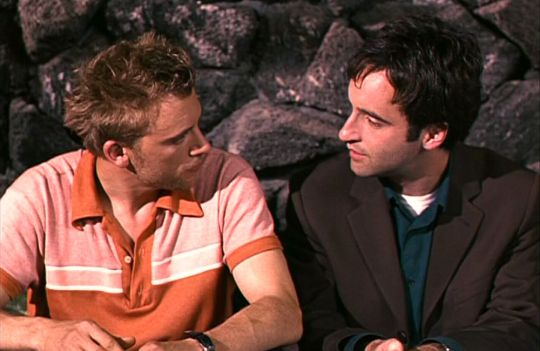
As Patrick, Don McKellar is terrific. He doesn’t overact, but rather makes good use of underacting to convincingly show his character’s hermit status. Callum Keith Rennie, in his Genie Award winning performance as Craig provides the comedy relief to counteract Patrick’s dramatics. The scene where he writes on the walls his various sexual dreams, he manages to keep a straight face, which is the mark of a good acting job. He is almost a precursor to Richard Coyle’s perverted character Jeff on the British TV series “Coupling”. David Cronenberg joins the group of directors that make good actors like John Huston with his soft spoken and timid Duncan. Not diminishing these performances at all, Sandra Oh’s namesake character puts these three to shame at key moments. She is probably the most true to life person in the whole film. Taking a simple plot line of a helpless woman, Oh manages to turn her role into a fascinating character study. If there was a performance that deserved the Genie Award, it’s her work on this film.
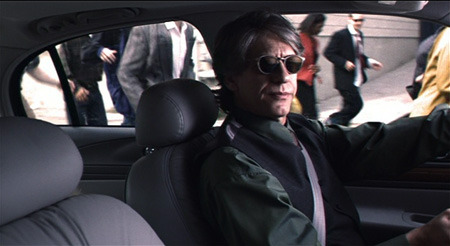
In addition to Oh and Rennie’s Genie Award wins, Don McKellar won the Claude Jutra Award for Best First Feature, an irony considering that Jutra was a sub-par director, but that’s another discussion. The film received an additional 10 nominations including 3 for McKellar in the Best Picture, Best Director and Best Screenplay categories, as well as two Supporting Actress nominations for Roberta Maxwell and Genevieve Bujold. It lost the majority of the awards to another film that McKellar was involved with, “The Red Violin”. McKellar won the Award of the Youth at the Cannes Film Festival and various awards around Canada. “Last Night” remains an unexpected, yet well deserved nugget in Canadian film history and also a film that should be made more aware to international audiences.
8.5/10
#dannyreviews#last night#don mckellar#sarah polley#roberta maxwell#robin gammell#sandra oh#david cronenberg#tracy wright#genevieve bujold#genie awards
5 notes
·
View notes

